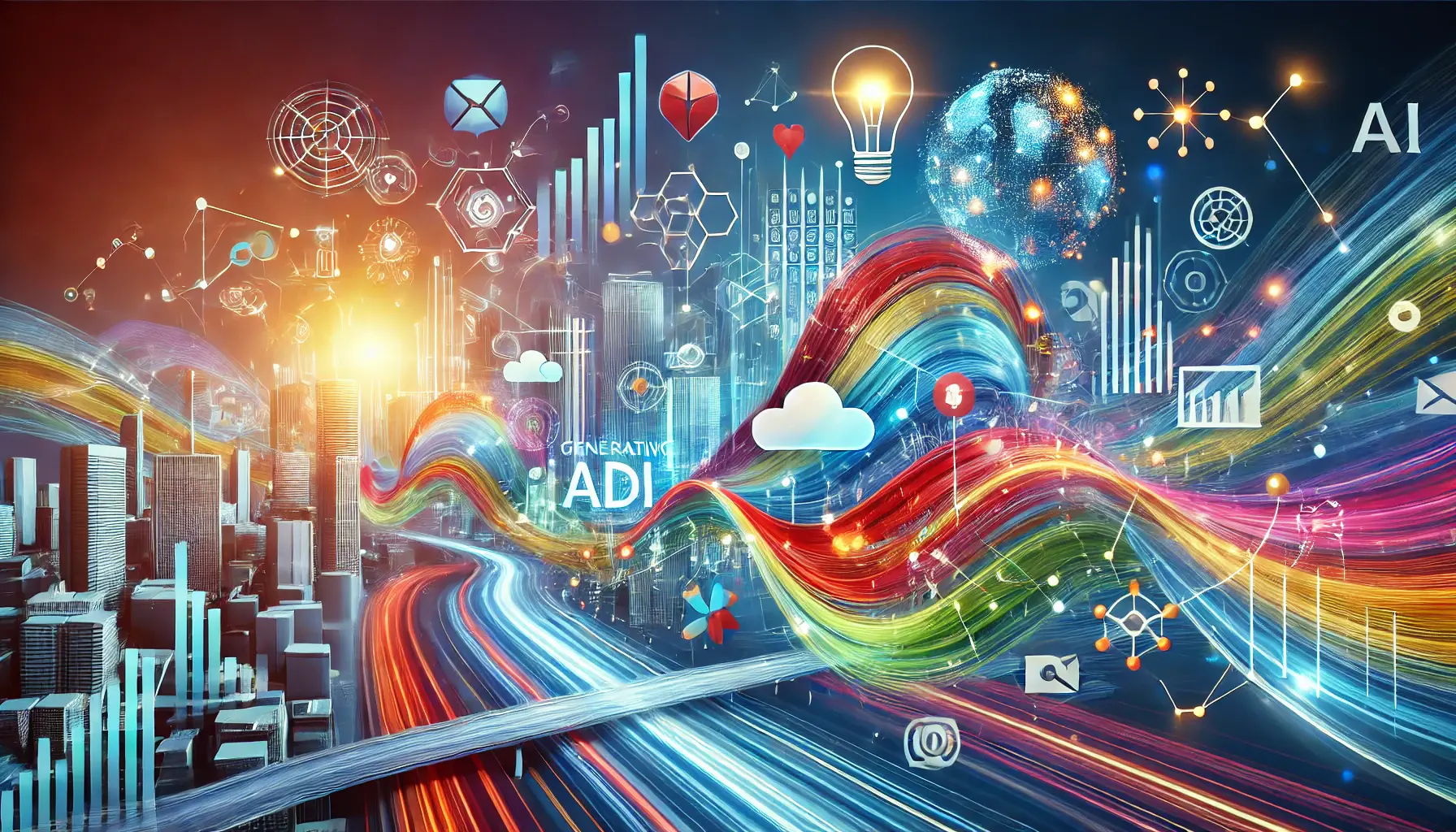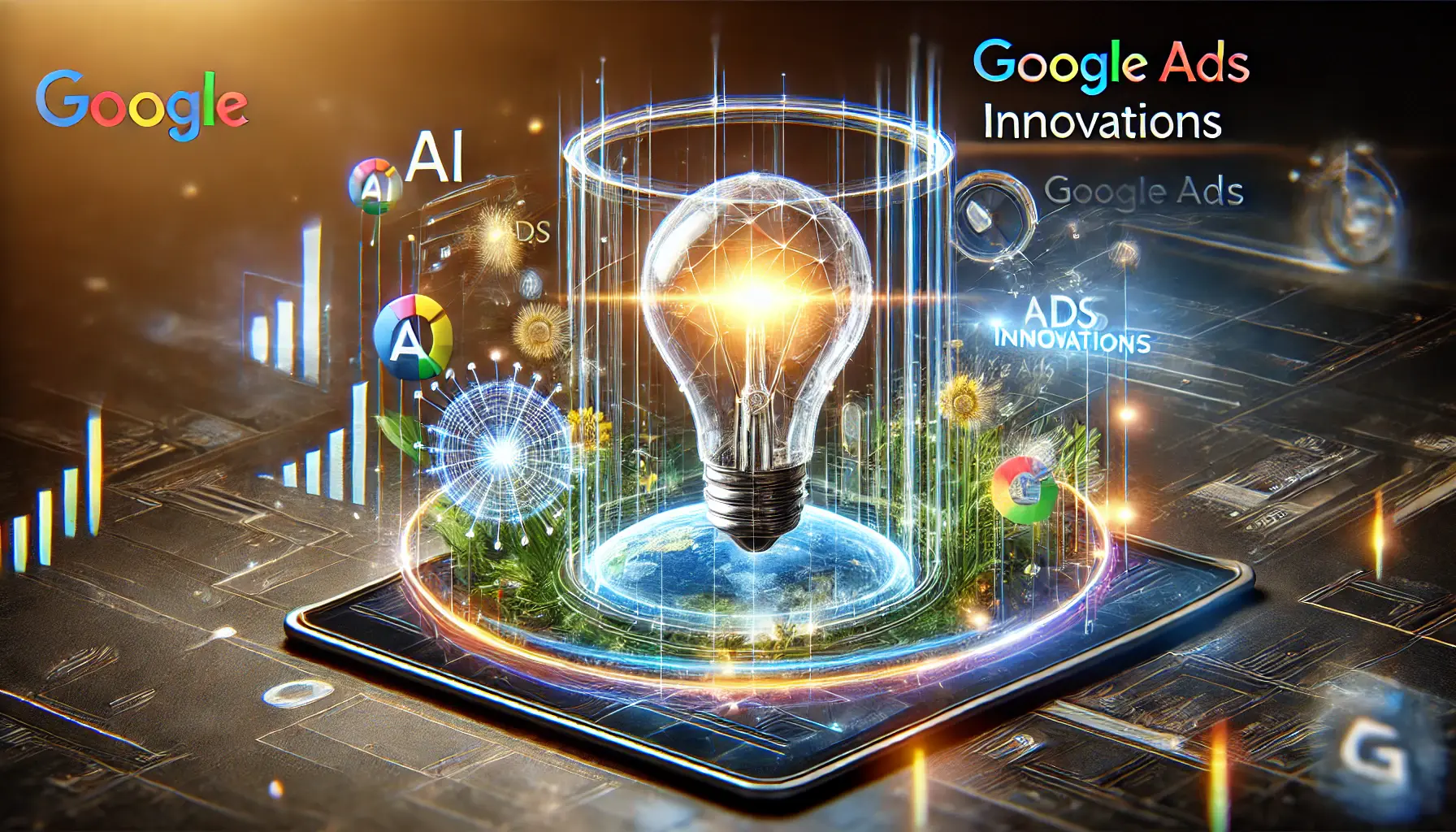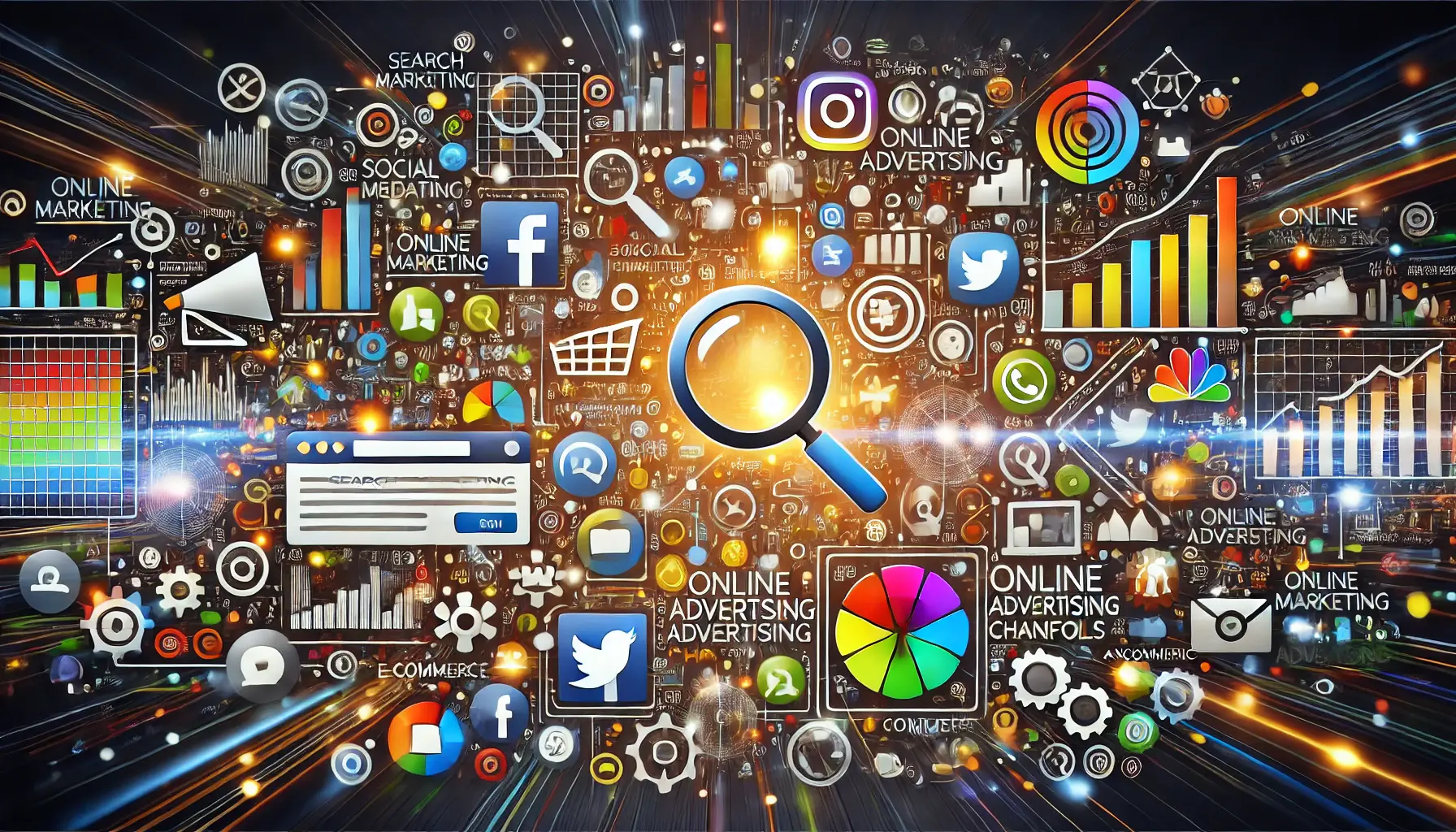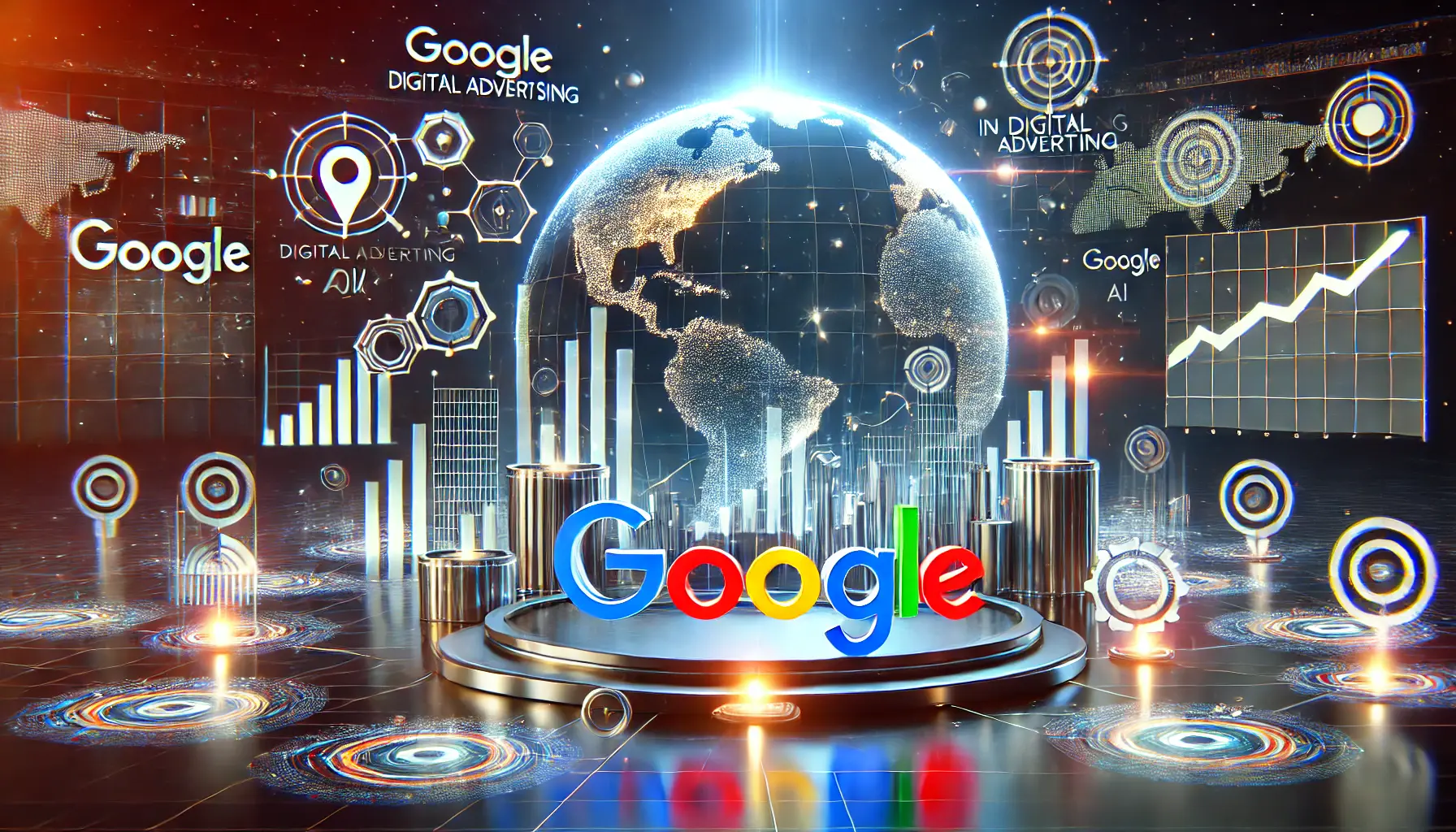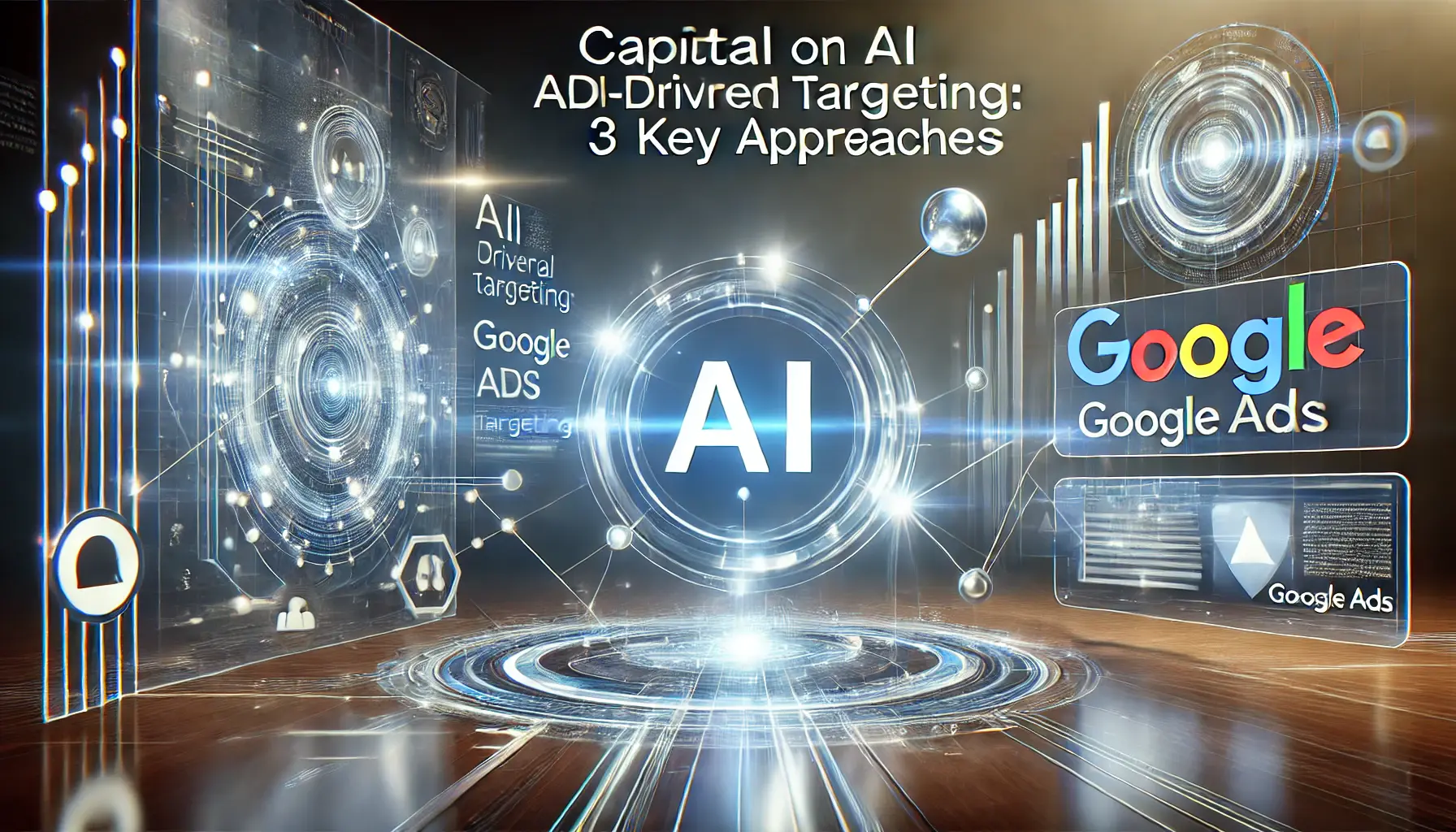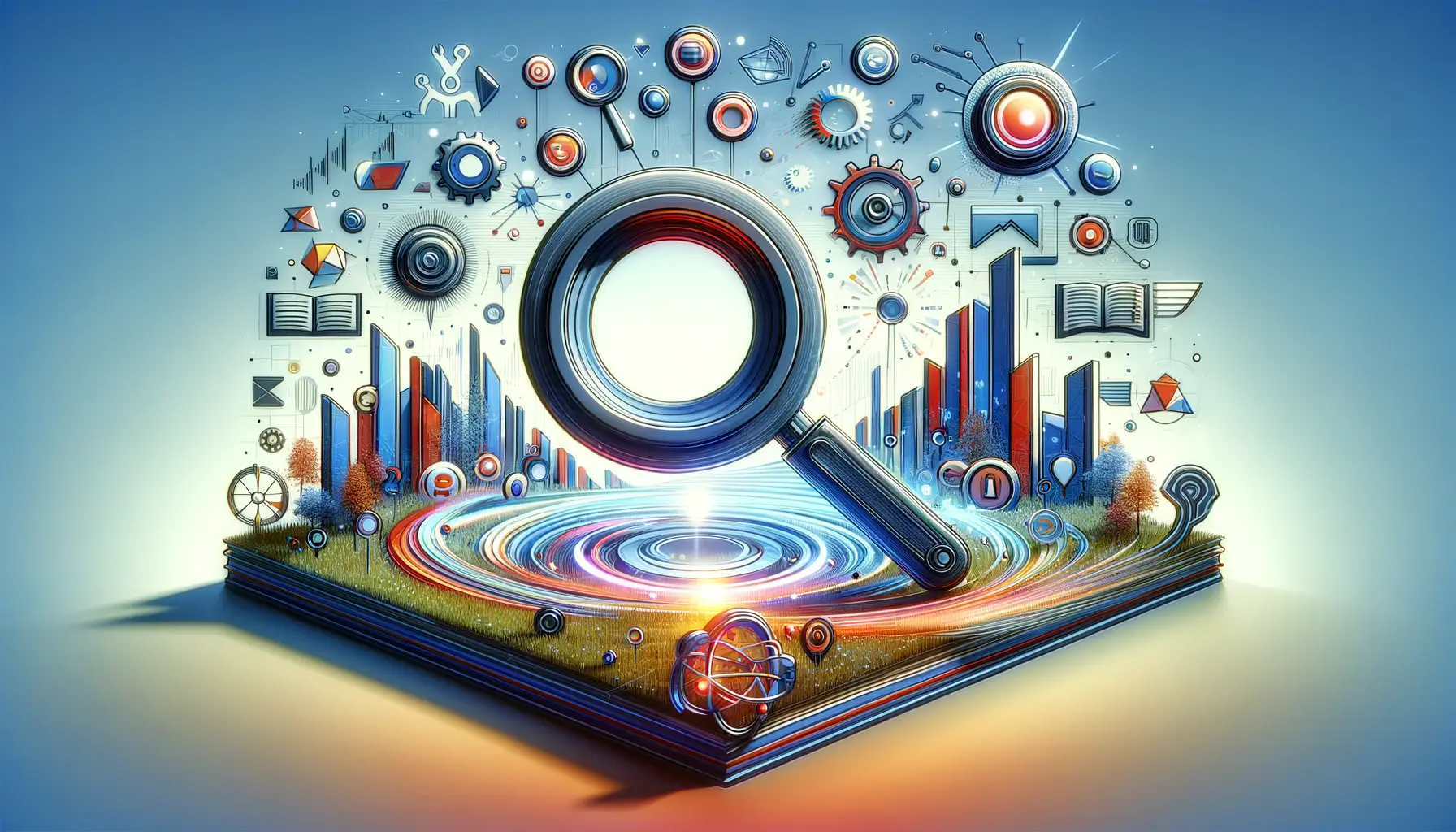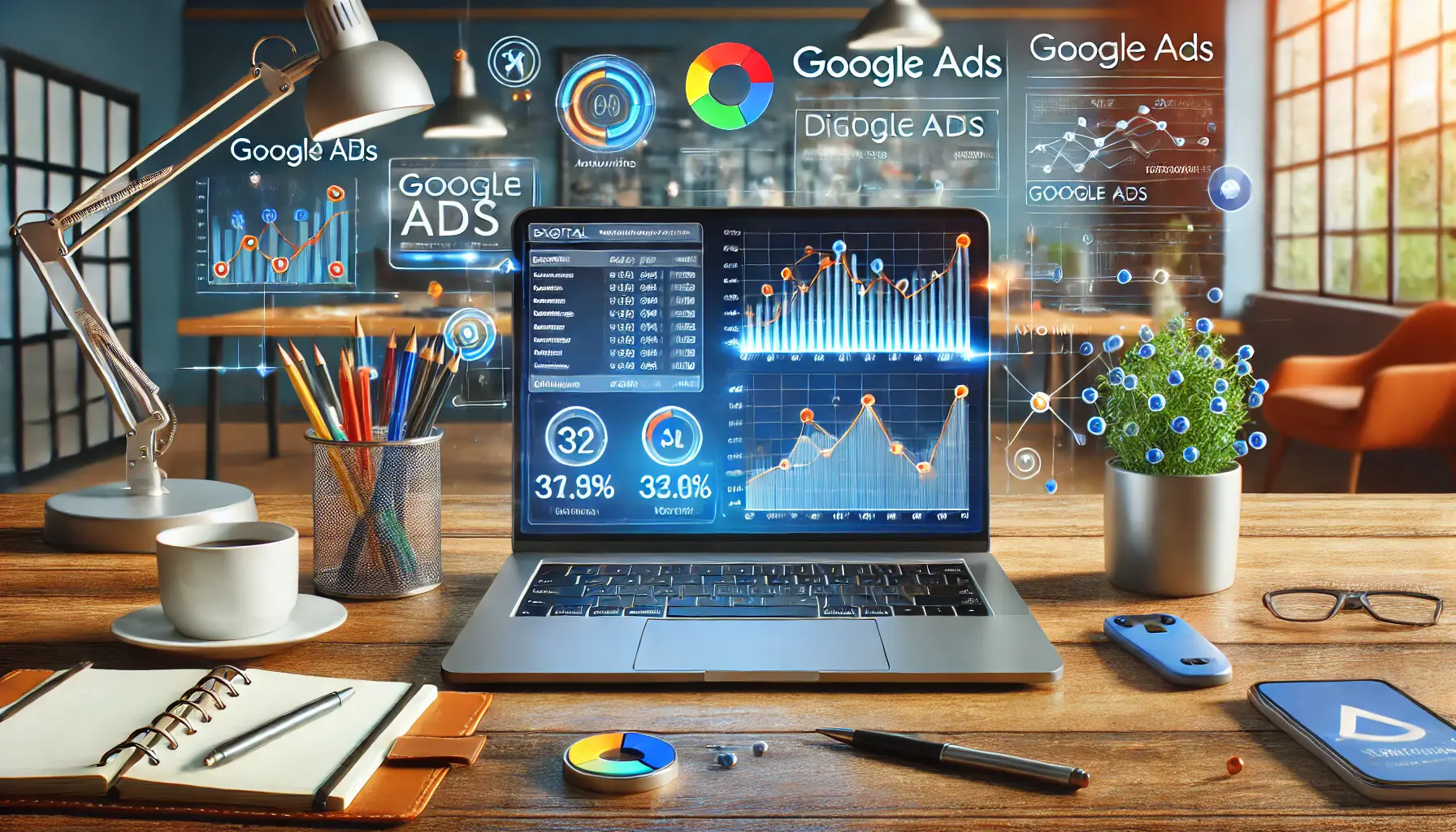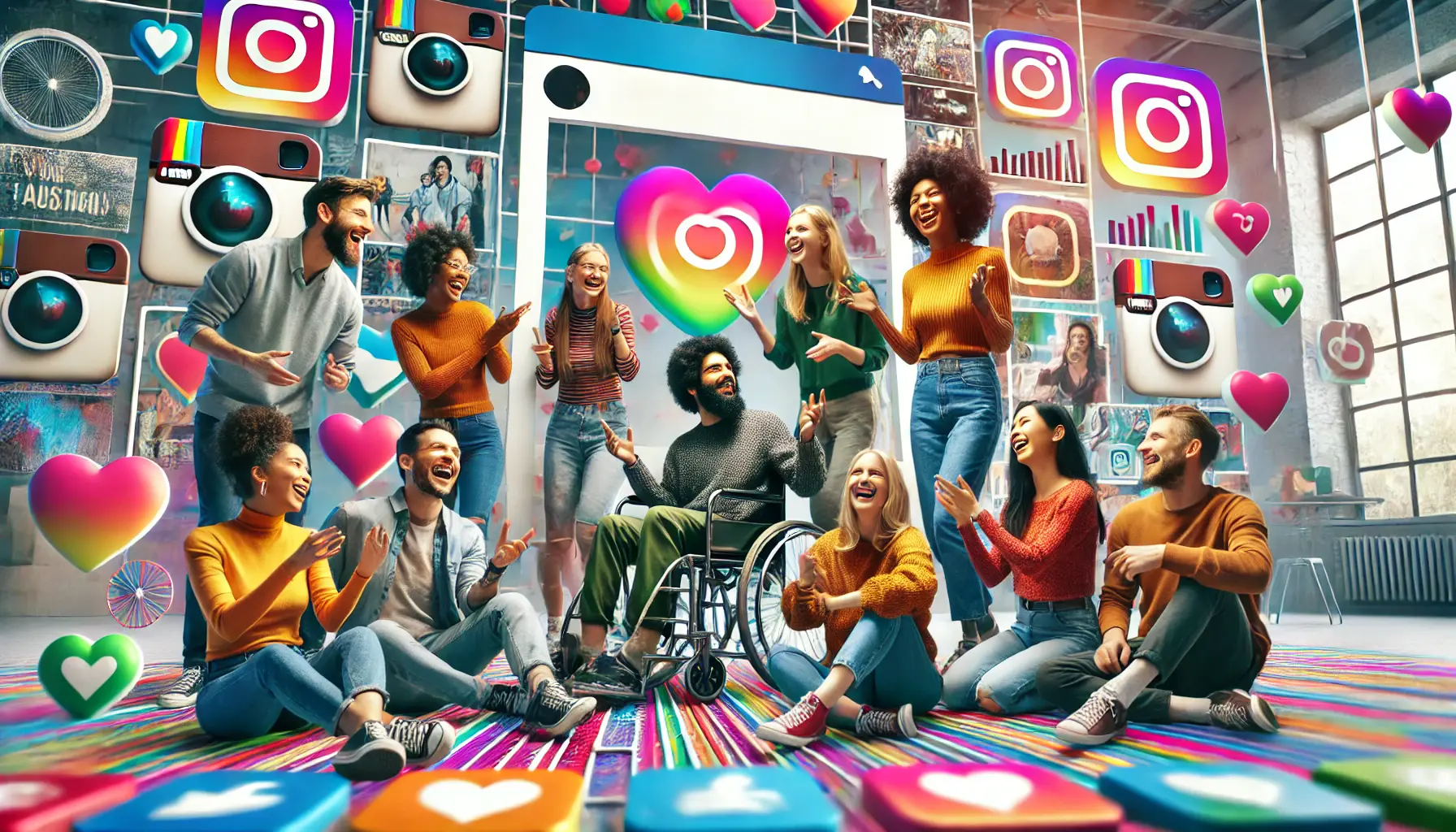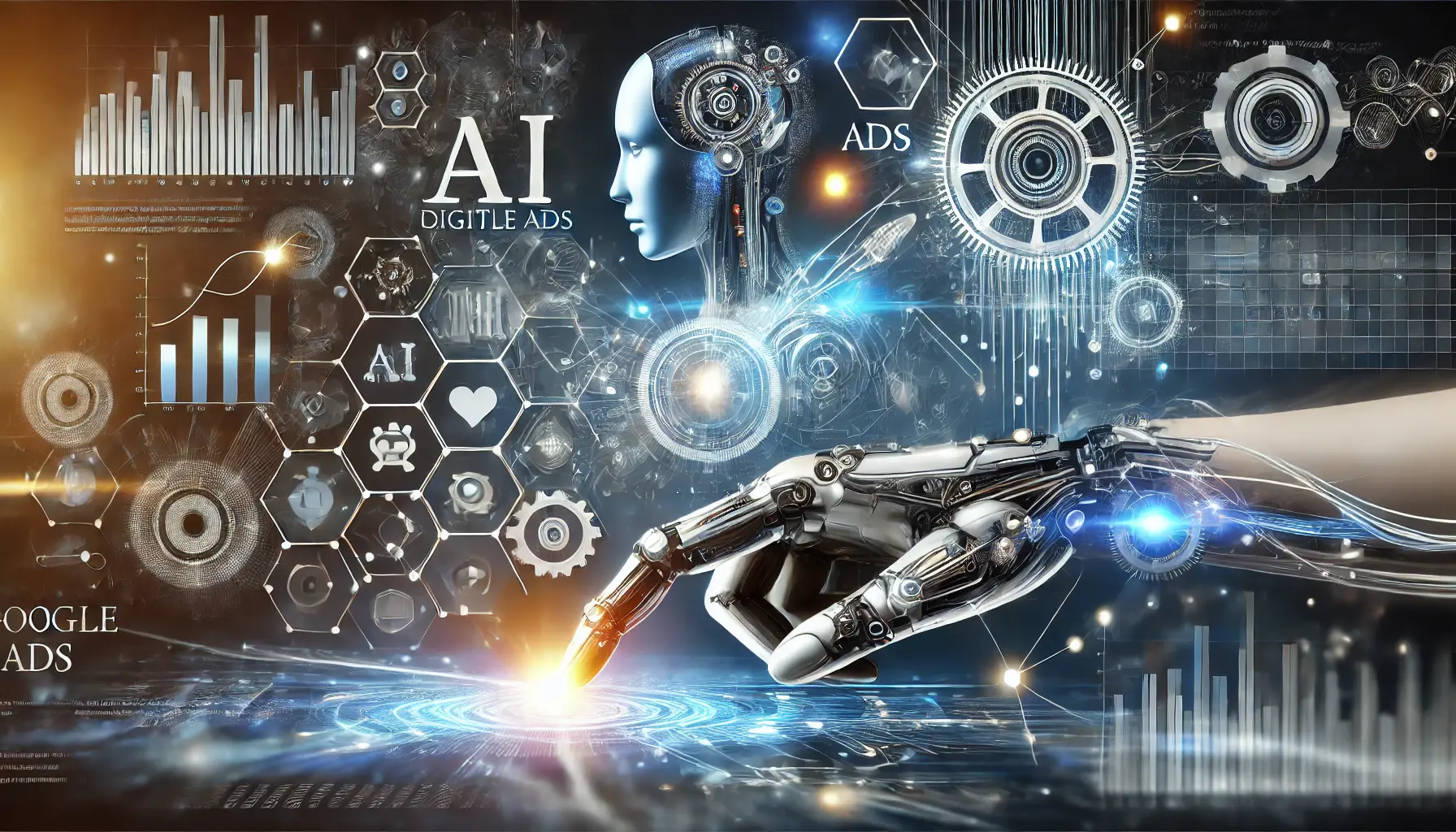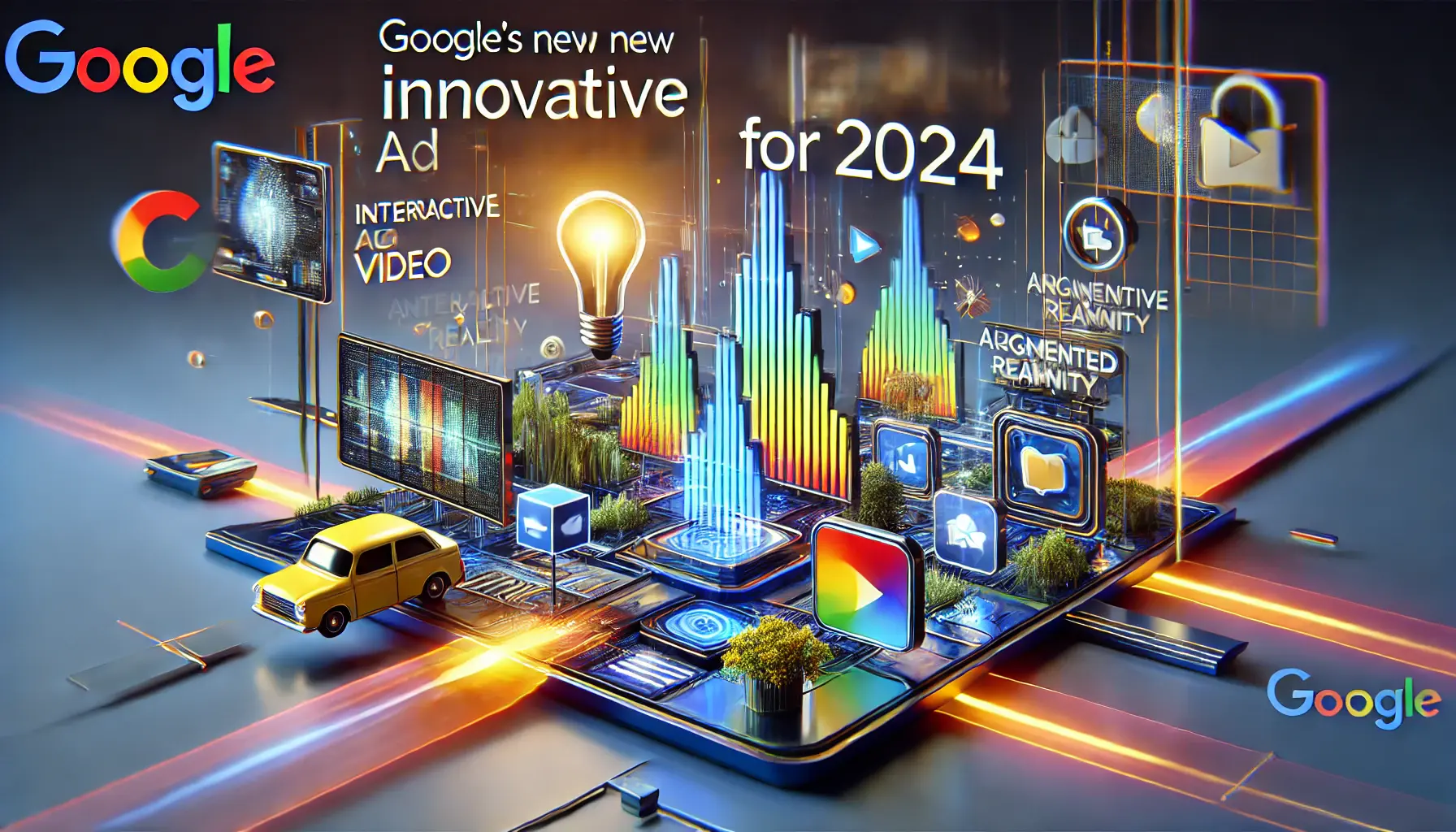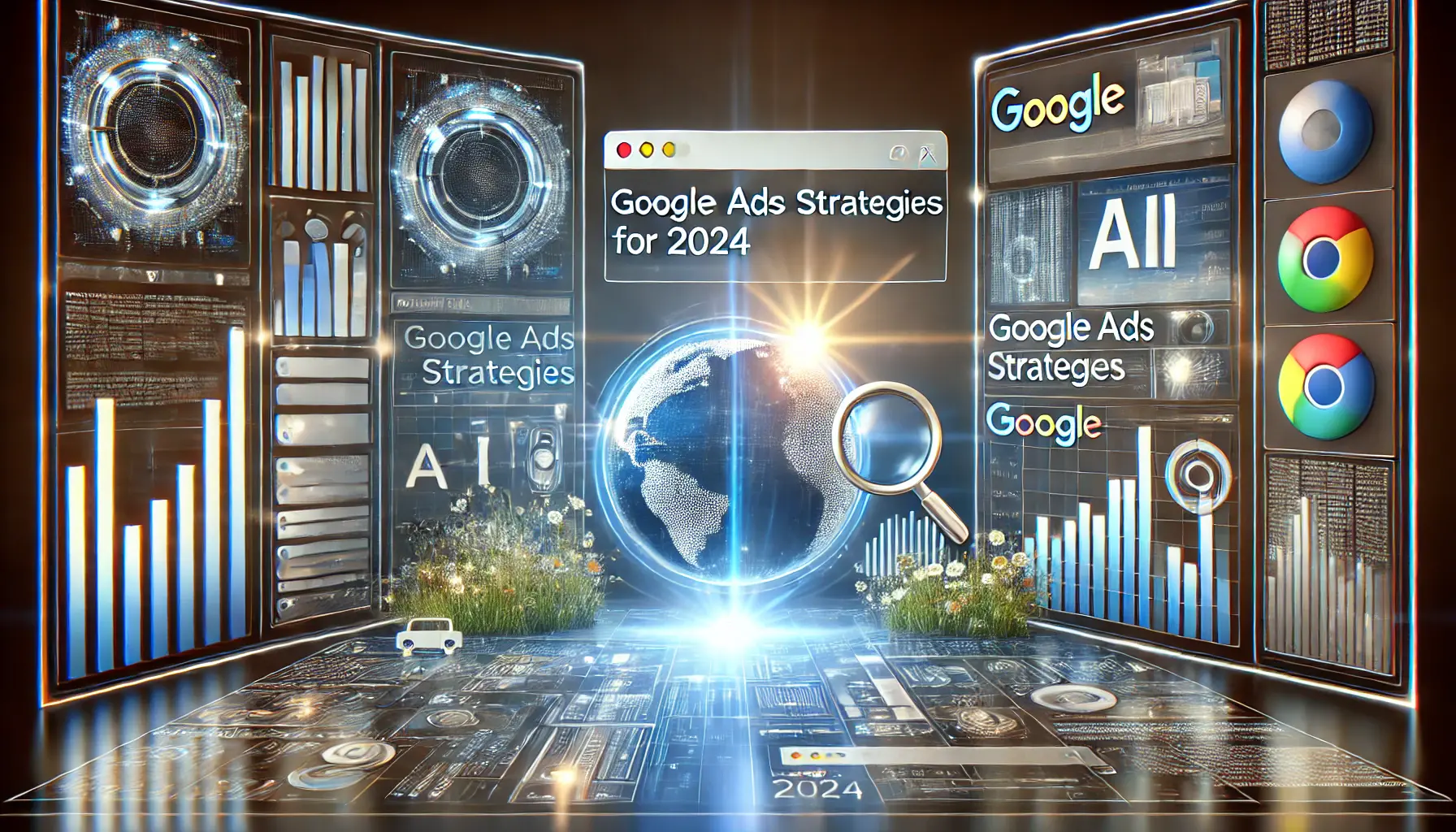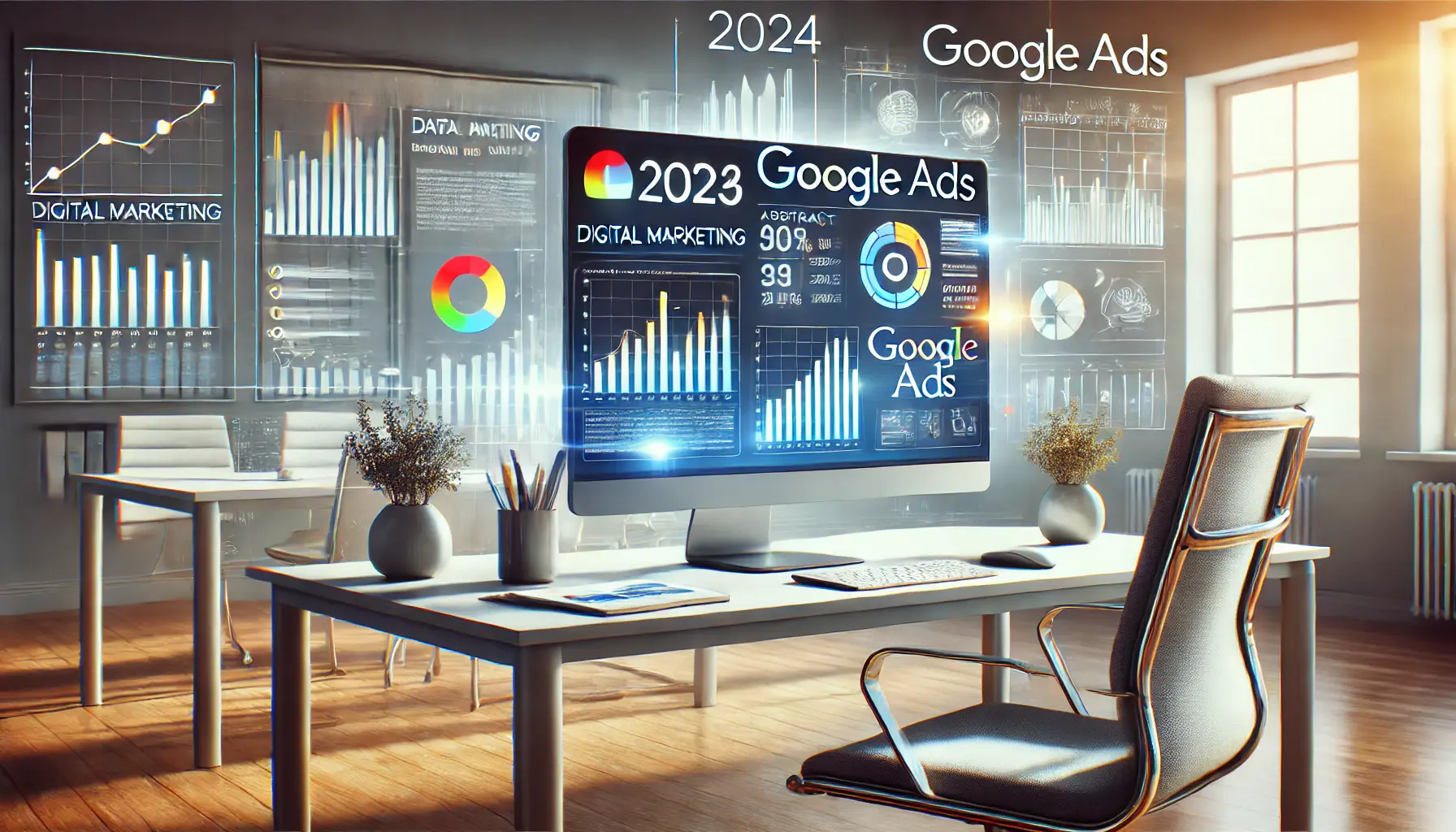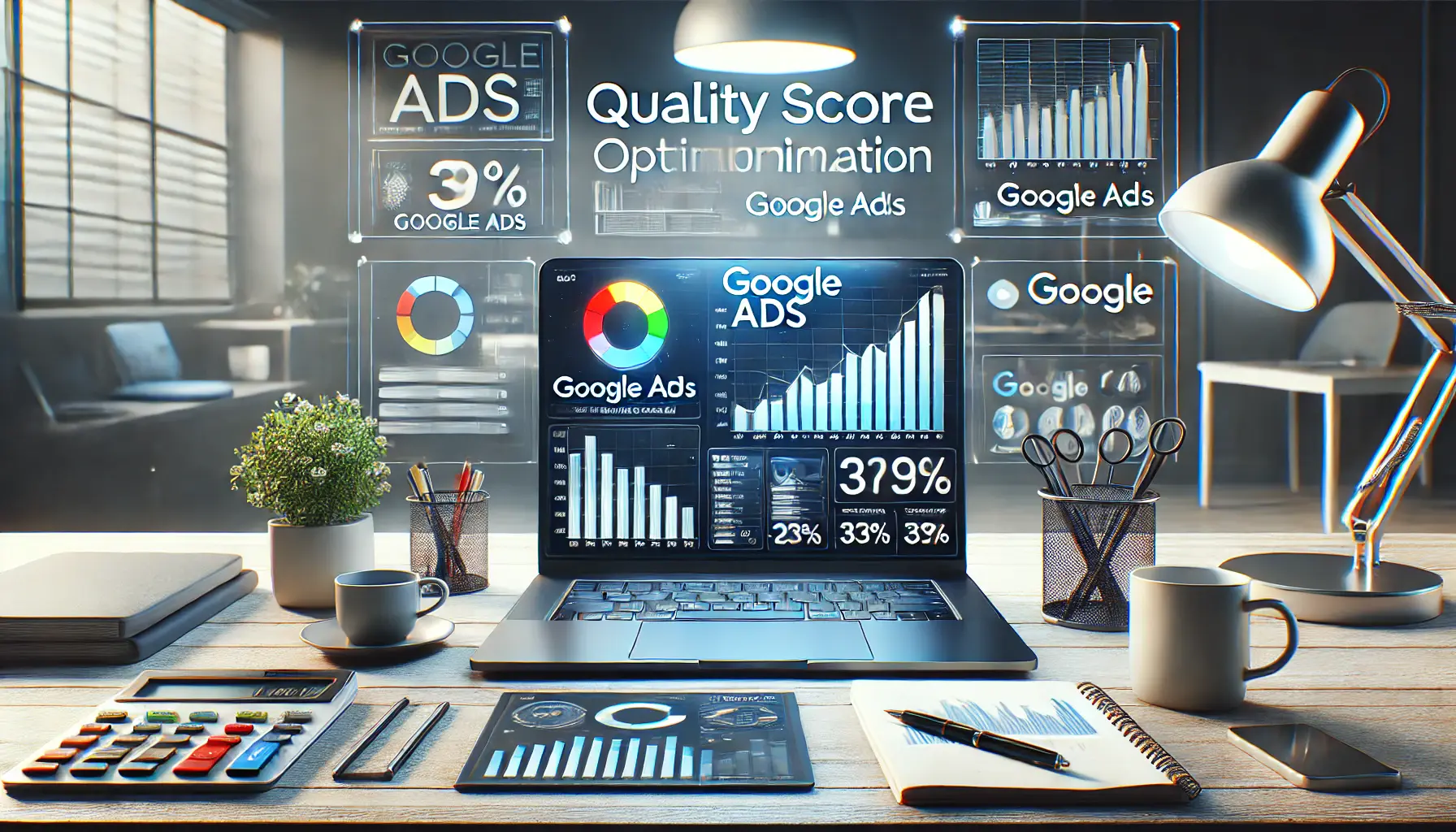In the world of constantly changing digital marketing, staying ahead of the curve is essential.
One of the most disruptive innovations to emerge recently has been the integration of Generative AIArtificial intelligence that creates content such as text, images, or videos. into ad platforms such as Google Ads.
This high-tech solution redefines how advertisers develop, reach out to, and optimize their campaigns with unparalleled speed and ingenuity.
What this could mean for you, in terms of better execution of your marketing strategy, is significant.
From creating personalized ad content to automating sophisticated campaign strategies, Generative AI is more than a buzzword; it’s a complete game-changer.
In this article, we’ll explore the powerful capabilities of Generative AI within Google Ads and how you can leverage this innovation to achieve your marketing goals.
- Understanding Generative AI in Google Ads
- Latest Generative AI Features in Google Ads
- Implementing Generative AI Strategies
- Case Studies: Success Stories with Generative AI
- Future Trends and Challenges in Generative AI for Advertising
- Unlocking the Future with Generative AI in Google Ads
- Frequently Asked Questions about Generative AI in Google Ads
Understanding Generative AI in Google Ads
Generative AI, at its core, is a type of artificial intelligence designed to create content—whether it’s text, images, videos, or even entire advertising strategies.
Within Google Ads, this technology has opened new doors for marketers to connect with audiences in more meaningful and impactful ways.
It’s not just about automation; it’s about delivering personalized experiences at scale.

Exploring the foundation: Generative AI’s key principles in marketing and technology.
Definition and Key Concepts
Generative AI uses complex algorithms and vast datasets to create unique, tailored outputs.
In the context of Google Ads, this means generating ad headlines, descriptions, and visuals that resonate deeply with specific audience segments.
By understanding user behavior and preferences, Generative AI ensures your ads are not only seen but also remembered.
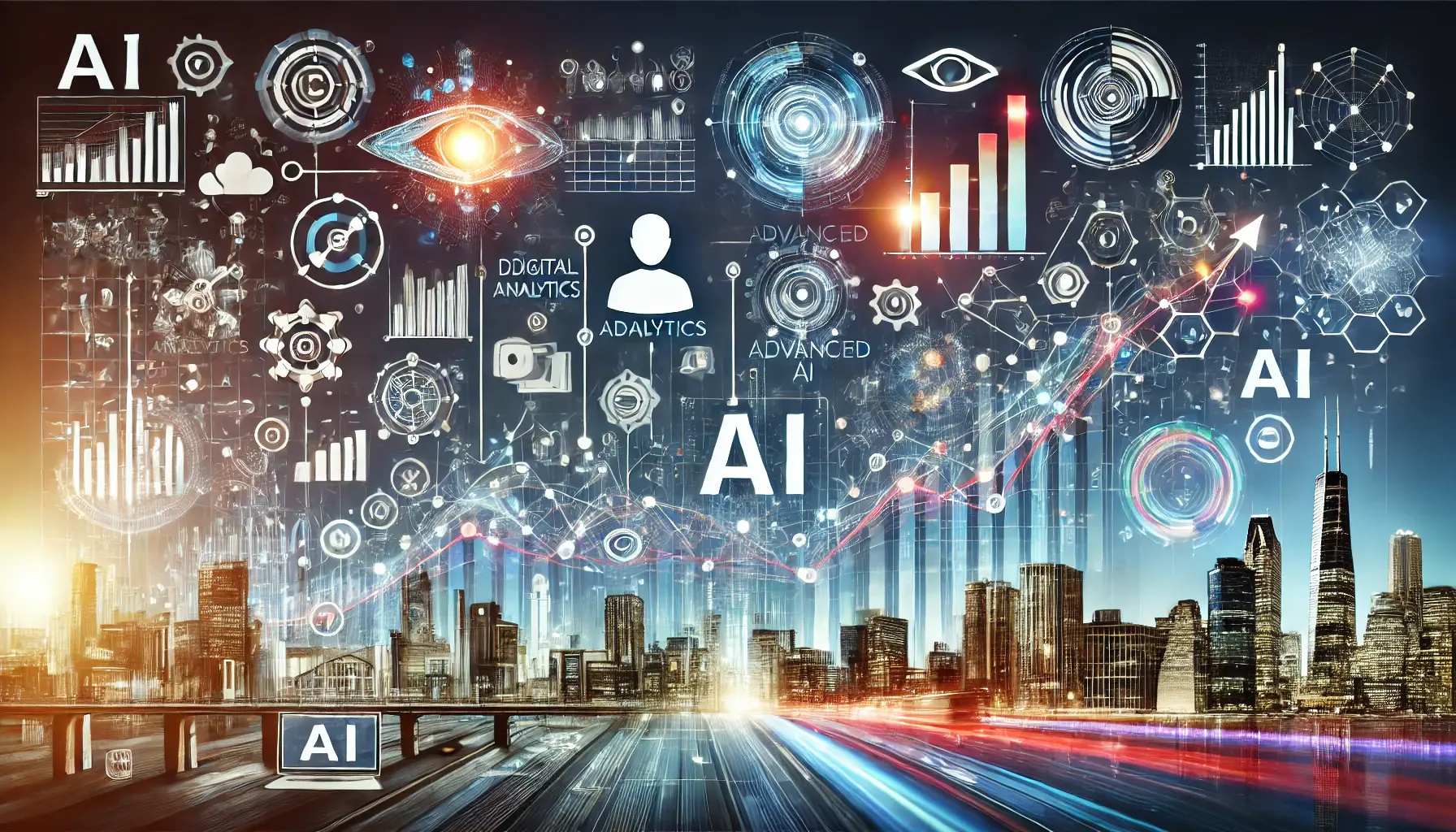
Tracing the journey: The transformative evolution of AI in digital advertising.
Evolution of AI in Digital Advertising
Digital advertising has always been a dynamic field, but the introduction of AI has elevated it to unprecedented heights.
From early predictive analytics to today’s sophisticated content generation, the journey of AI in advertising highlights a constant push toward innovation.
Generative AI represents the latest step in this evolution, merging creativity with data-driven precision.
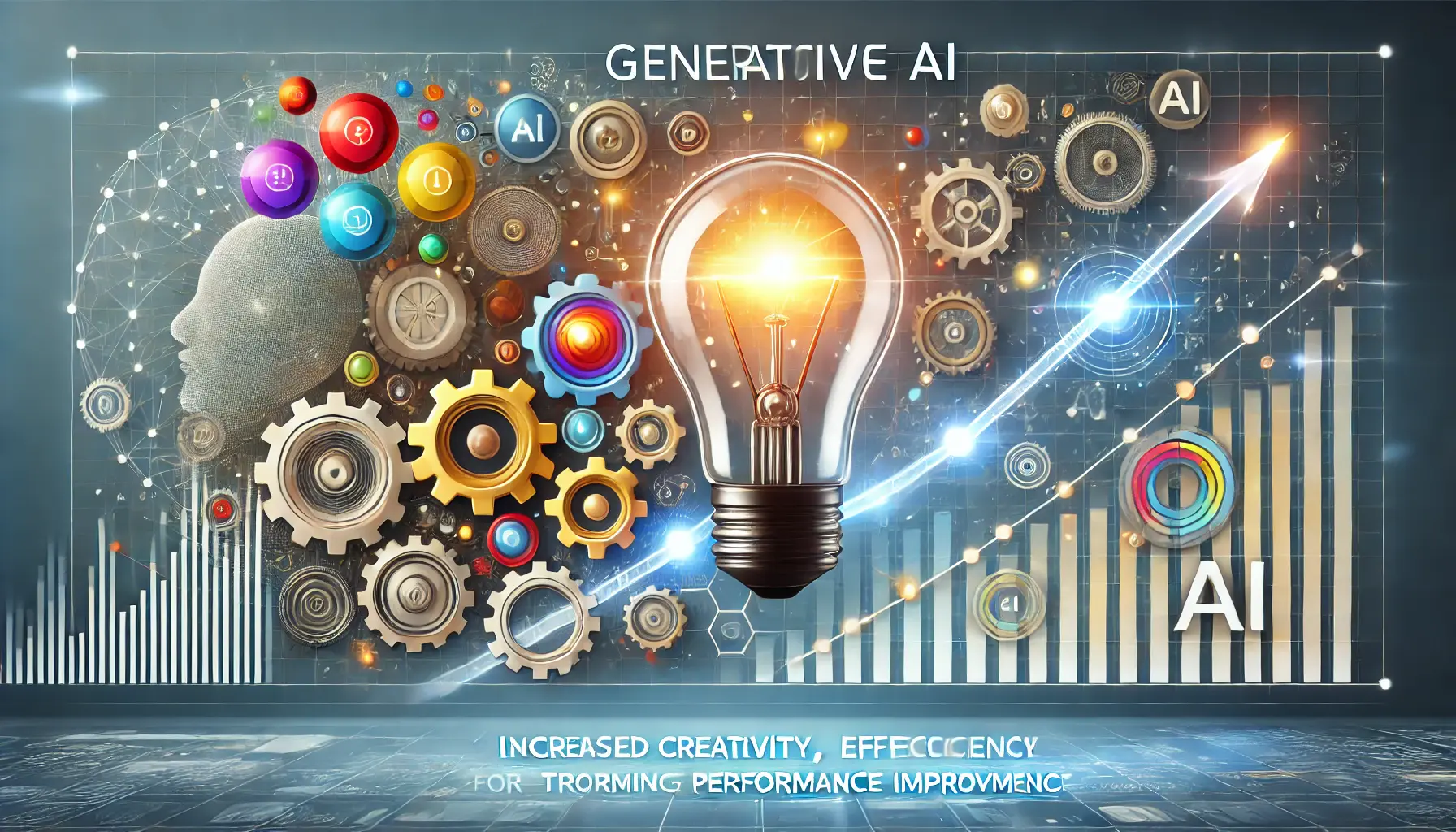
Unlocking potential: How Generative AI empowers advertisers with creativity, efficiency, and performance.
Benefits of Generative AI for Advertisers
Why should you embrace Generative AI in your Google Ads campaigns?
Here are some compelling reasons:
- Amplify Creativity: Generate unique ad copies and visuals that best fit your audience.
- Drive Efficiency: Automate time-consuming tasks, freeing up resources for strategy.
- Boost Performance: Optimize campaigns in real time with AI-driven insights.
Adopting Generative AI not only strengthens your advertising efforts but also gives you a competitive advantage in an ever-growing digital landscape.
Generative AI in Google Ads allows advertisers to create personalized, data-driven ads at scale, optimizing audience engagement and conversion rates.
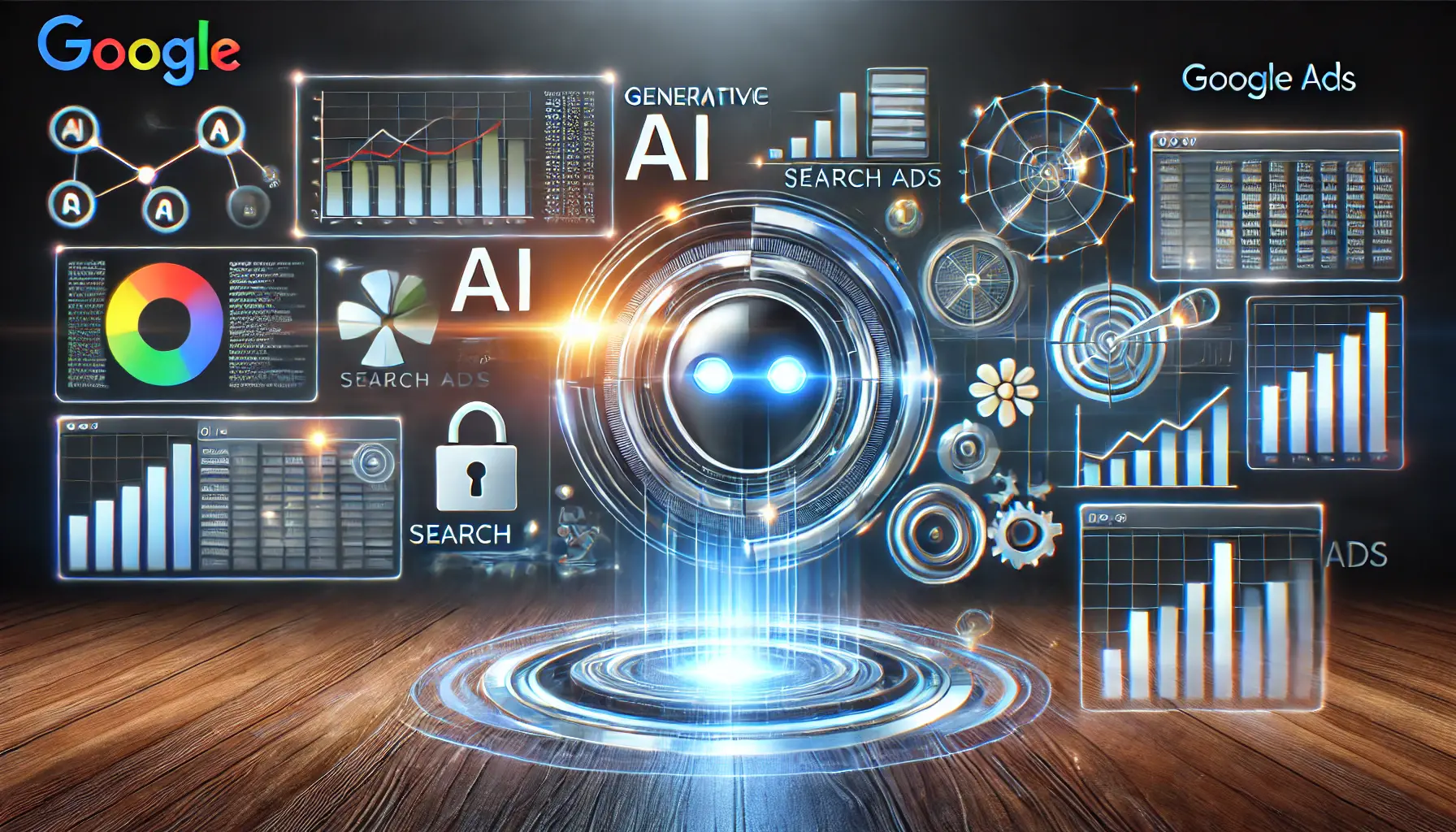
Revolutionizing ad campaigns: The latest Generative AI features in Google Ads.
Latest Generative AI Features in Google Ads
As we move through 2024, Google Ads continues to integrate cutting-edge Generative AI features designed to enhance campaign performance and streamline the advertising process.
Staying informed about these advancements can provide you with a competitive edge in the digital marketing landscape.
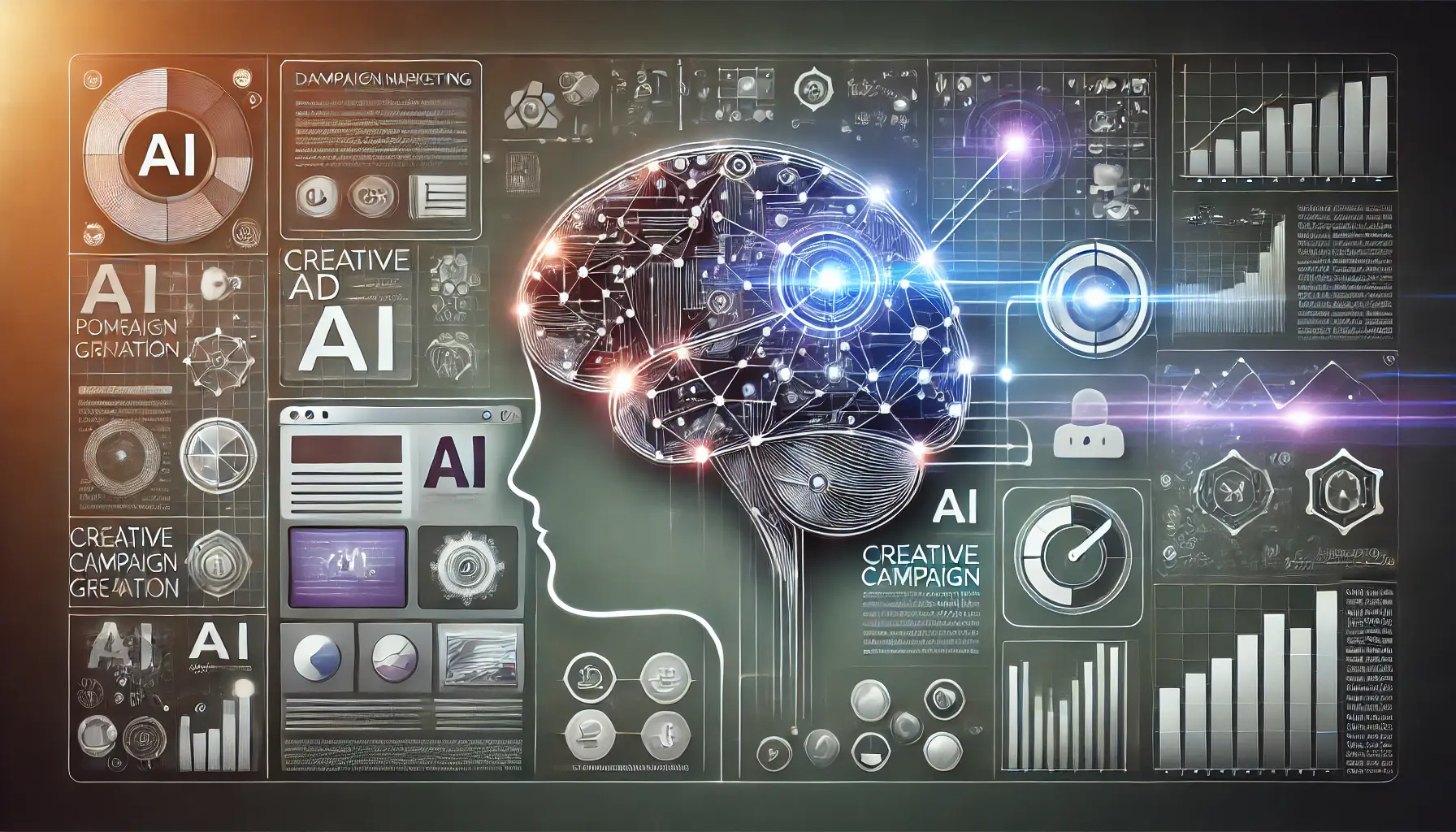
Simplifying advertising: AI-powered tools streamline campaign creation.
AI-Powered Campaign Creation Tools
Google has introduced conversational AI experiences within Google Ads, enabling advertisers to create high-performing Search campaigns more efficiently.
By leveraging Generative AI, these tools assist in generating optimized headlines and descriptions tailored to your target audience.
This innovation has led to a 63% increase in the likelihood of publishing Search campaigns with ‘Good’ or ‘Excellent’ Ad Strength among small business advertisers.
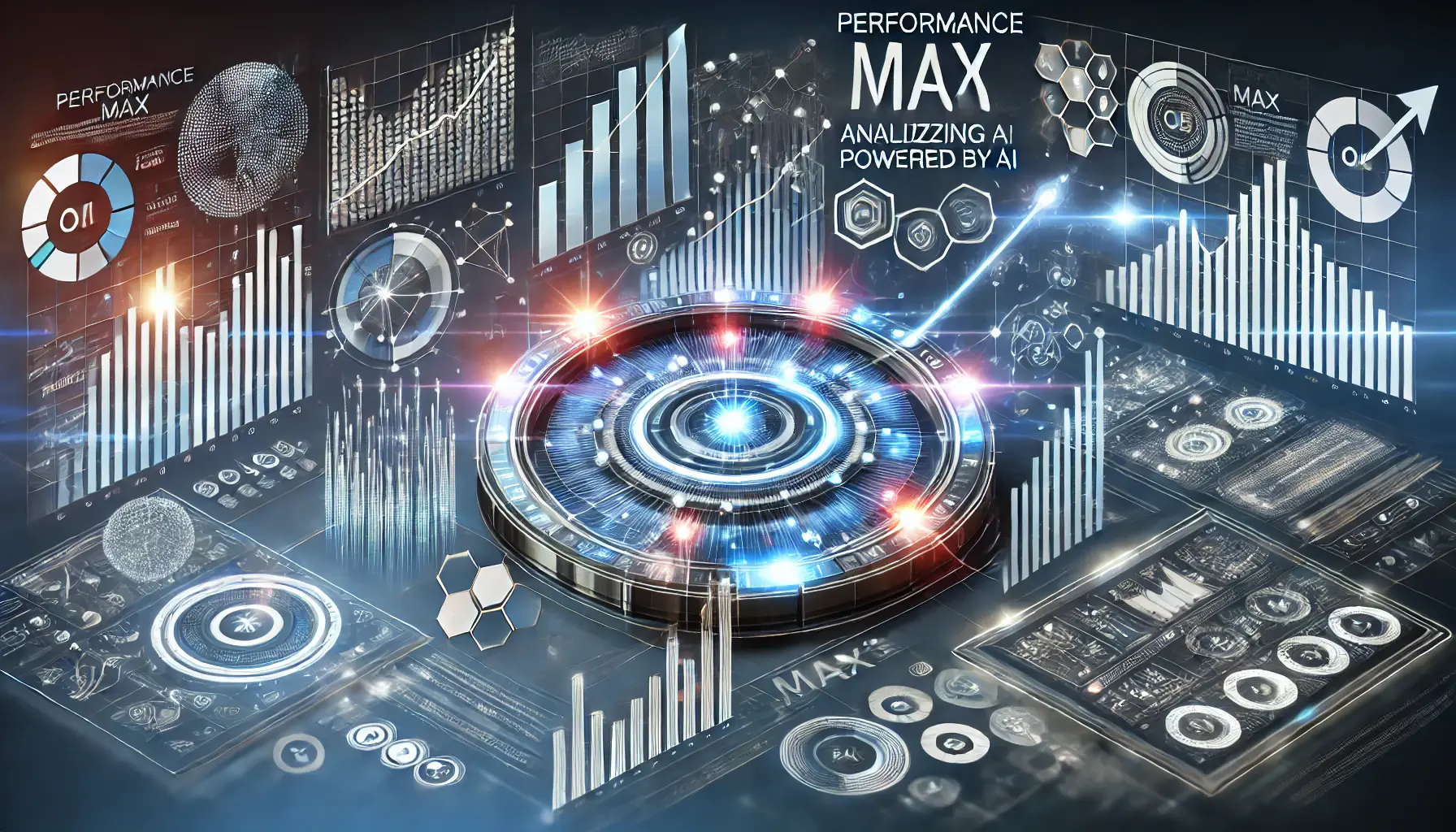
Maximizing performance: AI-driven advancements in Performance Max campaigns.
Advanced Performance Max Capabilities
Performance Max campaigns have now been enhanced with deeper machine learning capabilities, which allow for better optimization across various ad formats and placements.
The integration of Generative AI facilitates:
- Improved Predictive Insights: Anticipate trends and adjust targeting strategies dynamically to maximize ROI.
- Automated Asset Creation: Generate a diverse range of creative assets, including text, images, and videos, to enhance ad relevance and engagement.
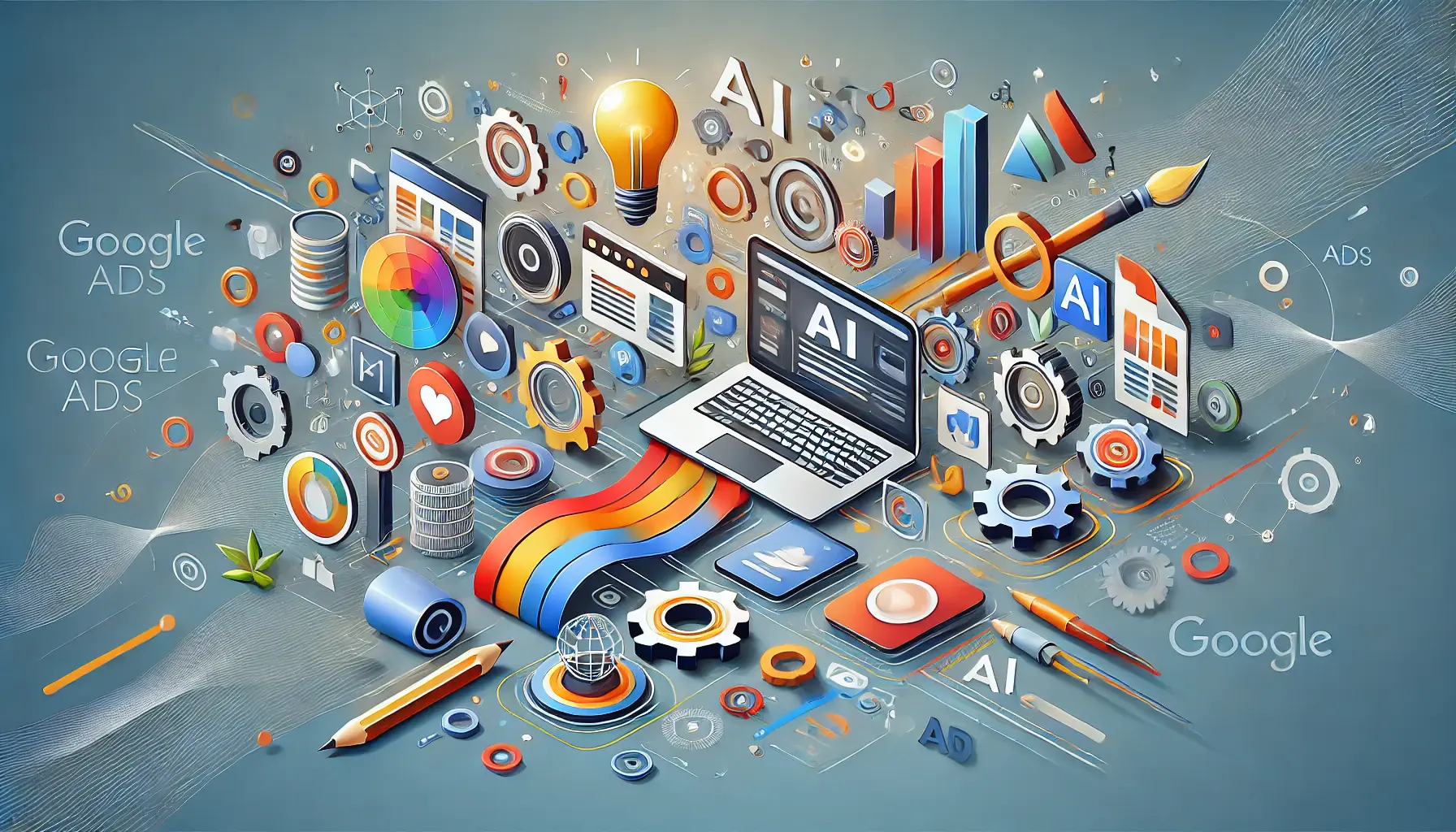
Streamlined creativity: Integrating creative platforms with Google Ads for enhanced advertising.
Integration with Creative Platforms
To further streamline the ad creation process, Google has partnered with creative platformsTools or software designed to aid in the creation of digital content, such as Canva or Smartly. like Canva, Smartly, and Pencil Pro.
These integrations empower you to import and edit creative assets seamlessly within the Google Ads interface.
With the help of Generative AI, you can create high-quality and engaging ads effortlessly.
By embracing these Generative AI features, you can enhance your advertising efforts, improve campaign performance, and deliver more personalized experiences to your audience.
Google Ads’ 2024 updates leverage Generative AI for smarter campaign creation and improved ad performance, providing a competitive edge to advertisers.
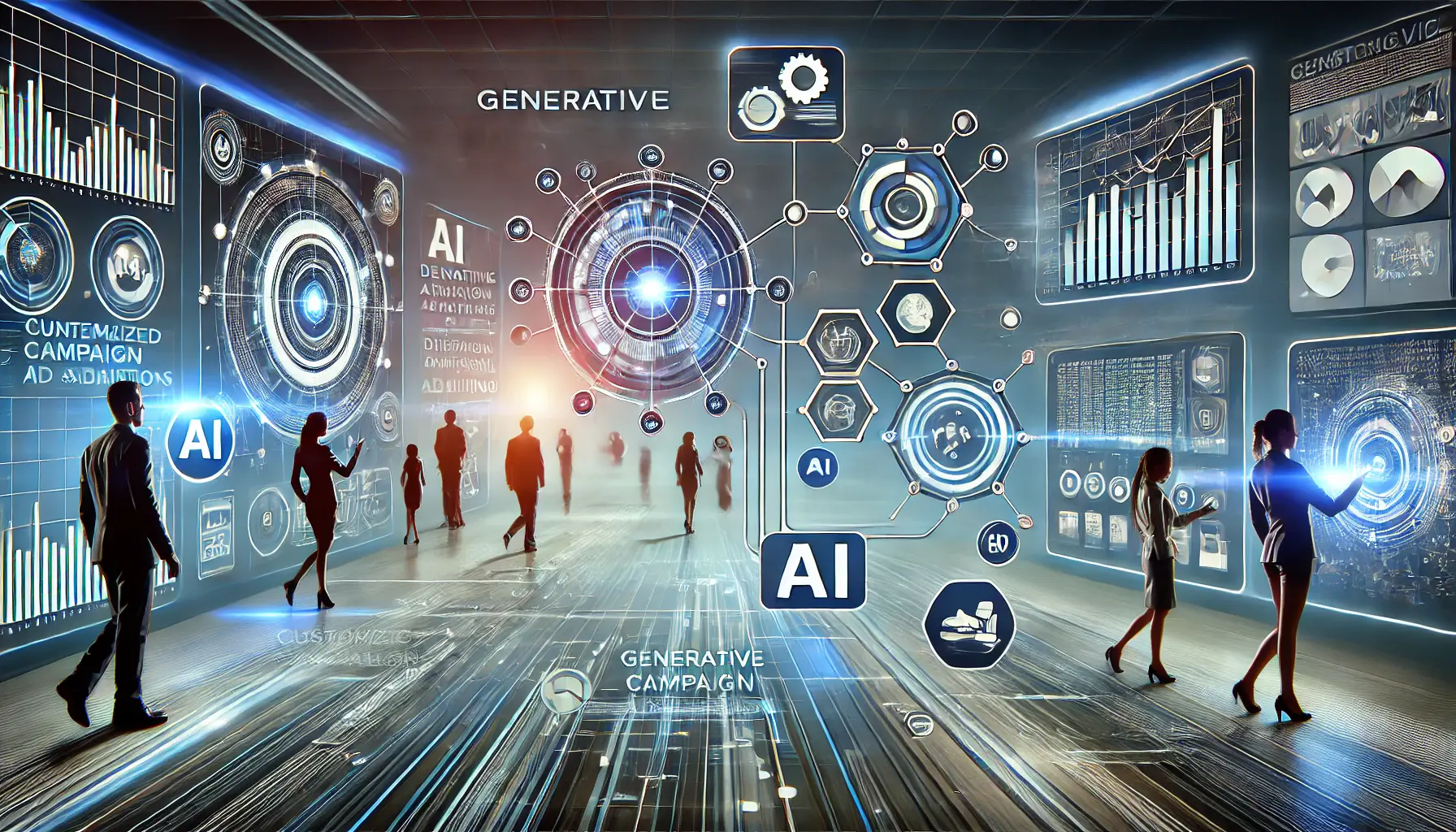
Driving success: Implementing Generative AI strategies for impactful advertising.
Implementing Generative AI Strategies
Integrating Generative AI into your Google Ads campaigns can significantly enhance personalization, efficiency, and overall performance.
By adopting AI-driven approaches, you can create more engaging ad content, automate audience targeting, and optimize bidding strategies to achieve your marketing objectives.
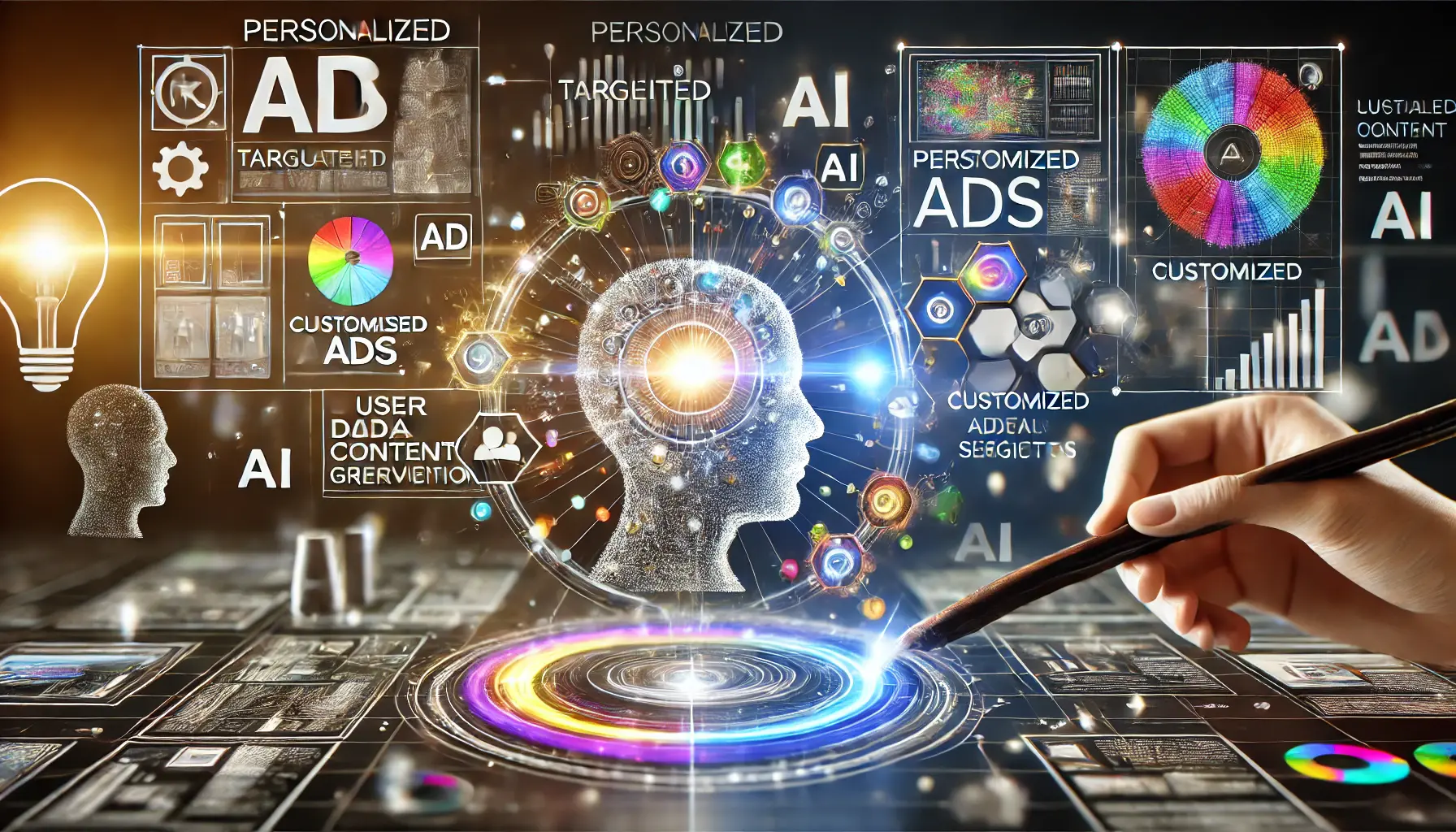
Creating connections: AI-powered personalized ad content for targeted engagement.
Personalized Ad Content Generation
Utilizing Generative AI enables the creation of tailored ad content that resonates with individual users.
By analyzing user behavior and preferences, AI generates personalized headlines, descriptions, and images to improve engagement and conversion rates.
For example, AI-powered image editing allows advertisers to add new objects, extend backgrounds, and crop images to fit different formats and orientations, ensuring that ads are always eye-catching and relevant to their target audience.
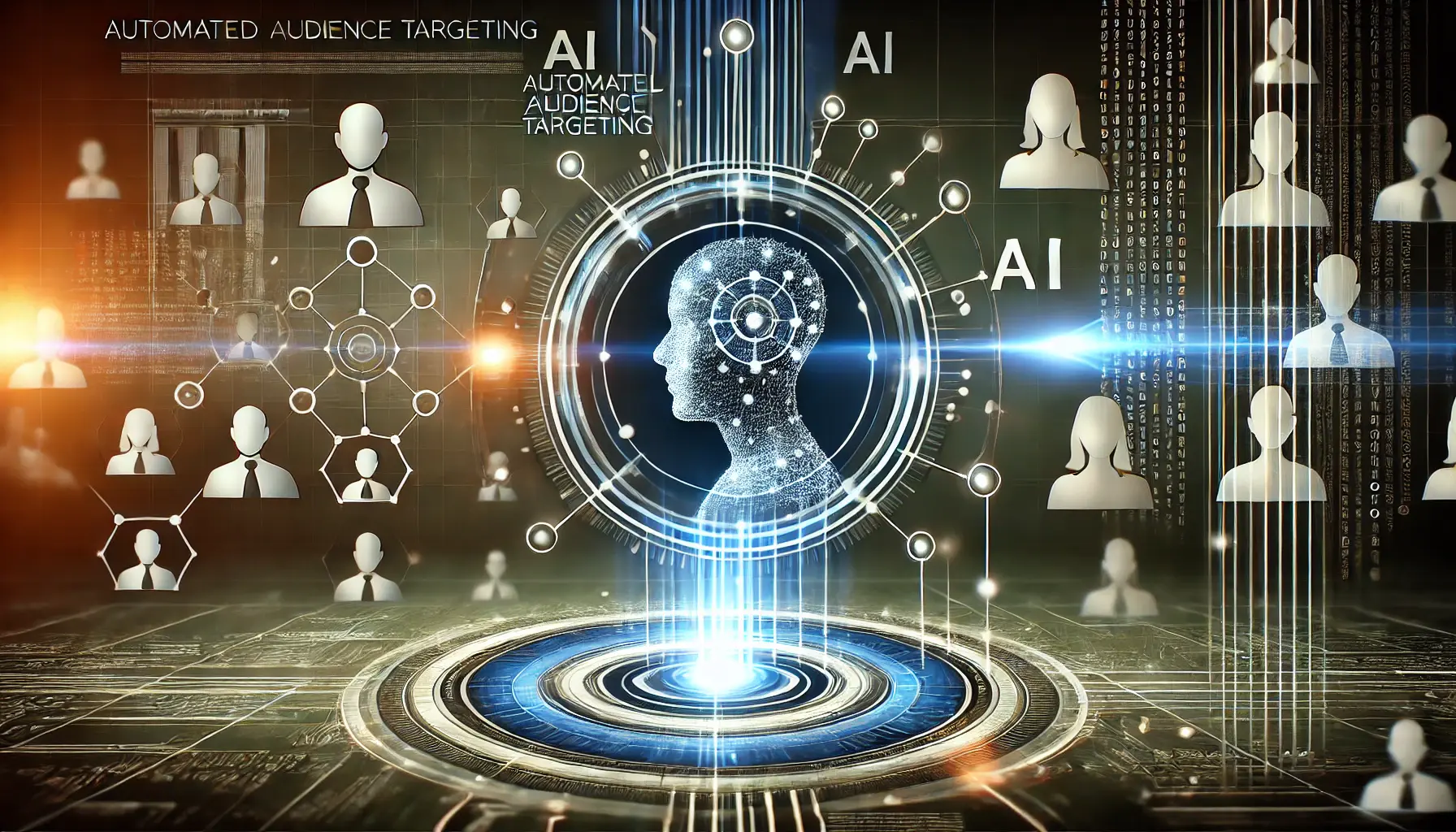
Precision targeting: AI-powered automated audience segmentation and ad delivery.
Automated Audience Targeting
Generative AI facilitates automated audience segmentation by analyzing vast datasets to identify patterns and behaviors.
This automation enables:
- Dynamic Audience Segmentation: AI can segment audiences based on real-time data, ensuring that your ads reach the most relevant users.
- Enhanced Targeting Precision: By understanding user intent and preferences, AI-driven campaigns can deliver personalized experiences that increase engagement and conversion rates.
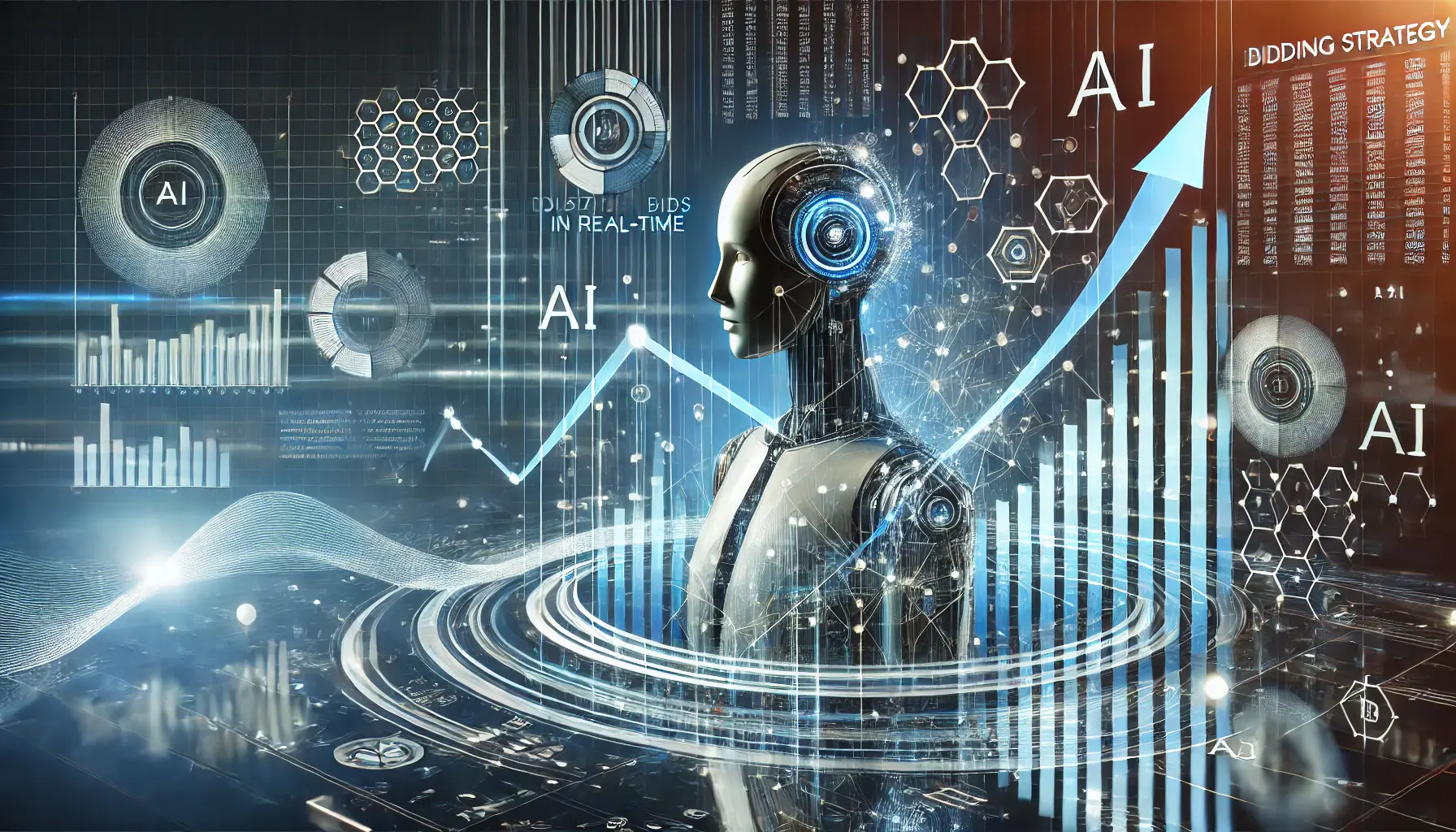
AI-driven precision: Optimizing bidding strategies for enhanced digital advertising performance.
Optimizing Bidding Strategies with AI
Implementing AI-driven bidding strategies allows for real-time adjustments based on user behavior and market trends.
Benefits include:
- Automated Bid Adjustments: AI automatically adjusts bids in real-time, down to the millisecond, to help advertisers yield the highest ROI. It ensures that every cent of your advertising budget brings maximum value.
- Performance Max Campaigns: These campaigns leverage AI to dynamically allocate budgets across Google’s channels and audiences for better conversions and value.
Integrating Generative AI in ad campaigns personalizes user experiences, automates targeting, and optimizes bidding strategies.

Success in action: How Generative AI is driving growth and innovation in digital marketing.
Case Studies: Success Stories with Generative AI
Integrating Generative AI into advertising strategies has enabled businesses across various industries to achieve remarkable results.
Let’s explore some real-world examples that highlight the effectiveness of AI-driven campaigns.
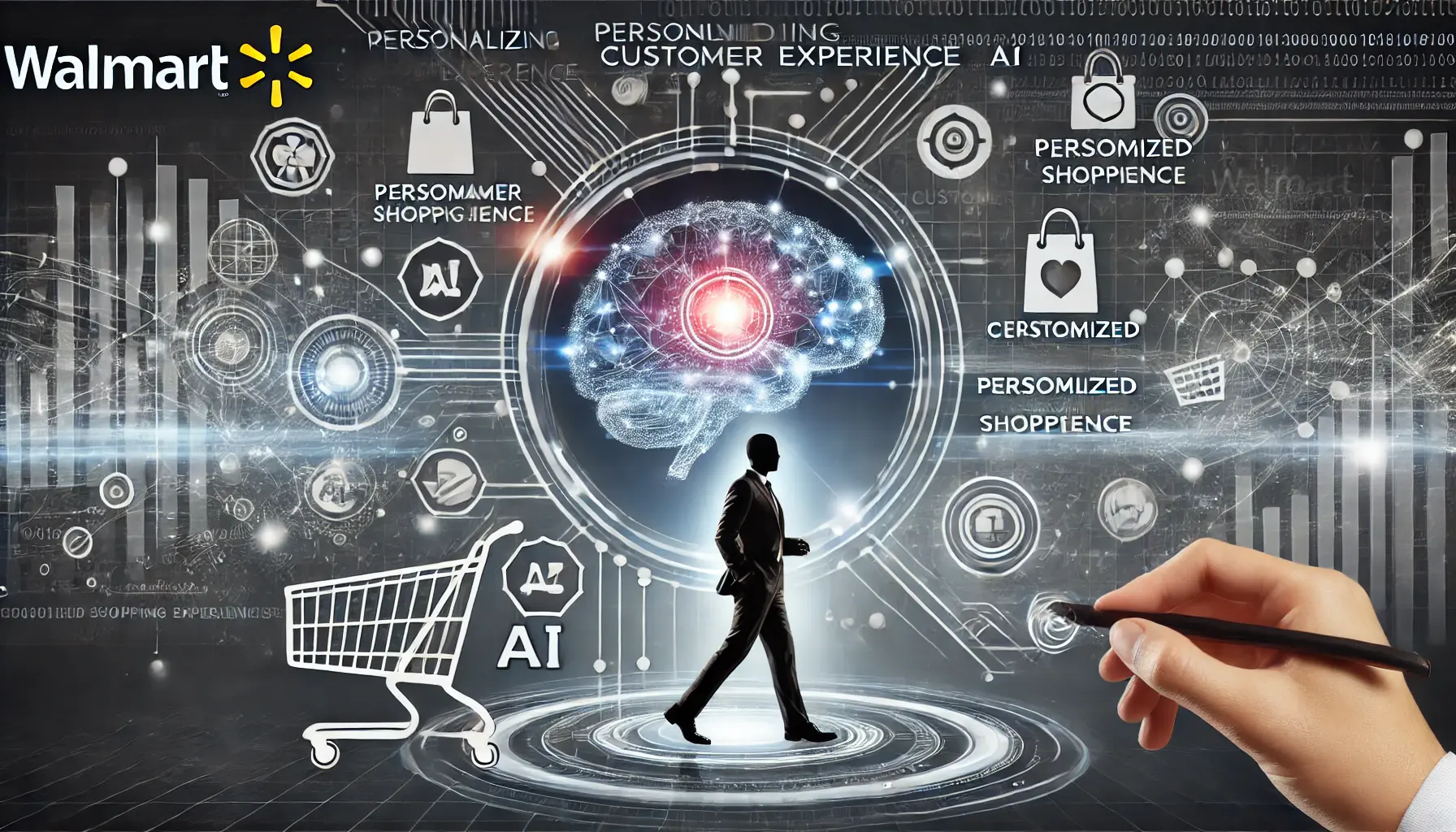
Personalized shopping: Walmart’s innovative use of AI to enhance customer experiences.
Walmart: Personalizing Customer Experience
Walmart faced the challenge of personalizing shopping experiences and marketing messages for millions of customers in a highly competitive retail market.
By introducing a Generative AI platform, Walmart created marketing content that aligned more closely with customer preferences and past purchasing behavior.
This resulted in increased customer engagement and satisfaction, driving higher sales and loyalty.
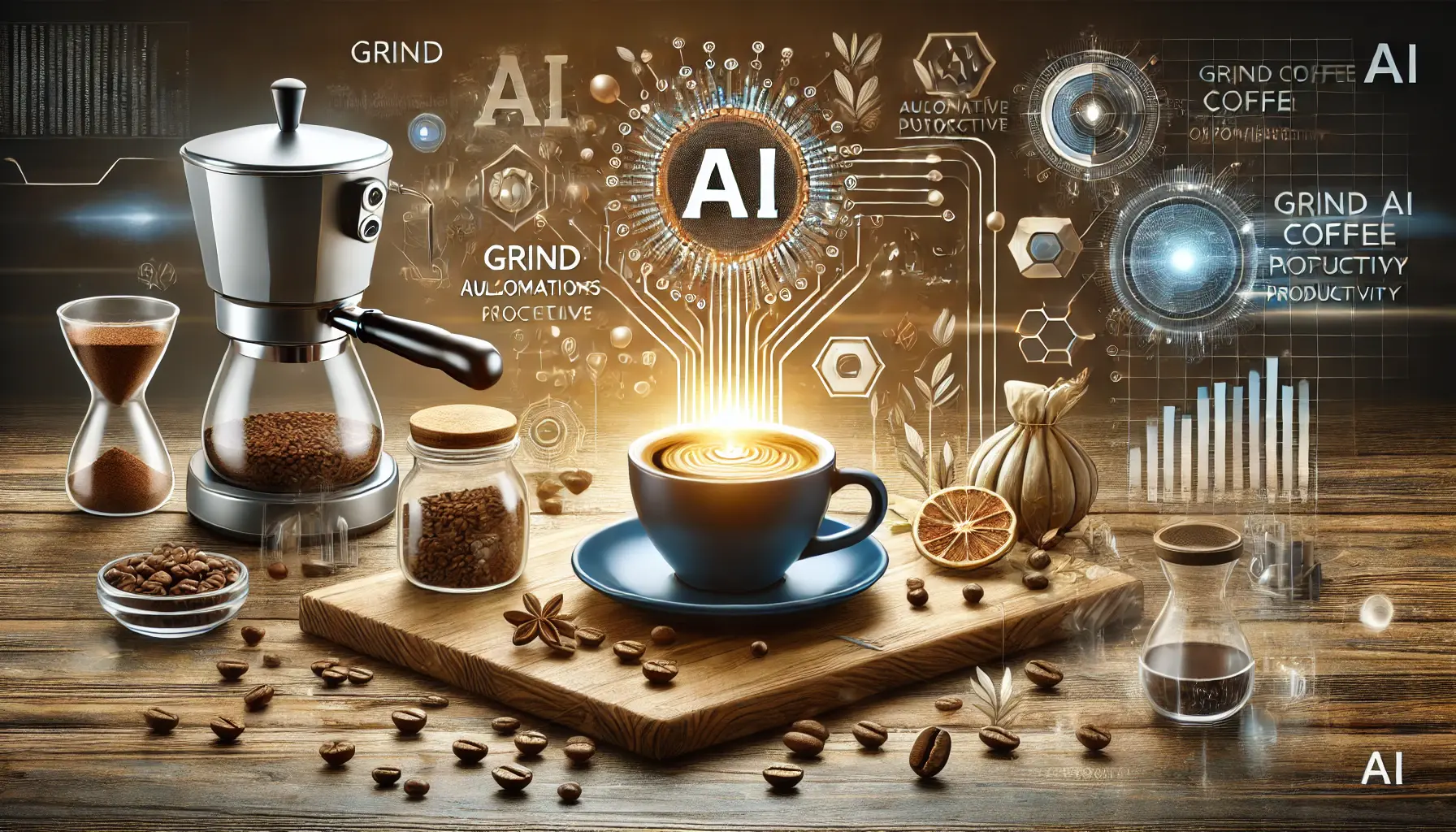
AI-powered productivity: Grind Coffee’s innovative use of technology to streamline operations.
Grind Coffee: Boosting Productivity with AI
Grind Coffee, a UK-based retailer, partnered with Google to integrate AI-powered productivity tools.
By applying Generative AI, Grind’s teams automated tasks such as marketing content creation, customer query management, and performance reporting.
This technology enhanced operational efficiency and allowed the company to focus more on strategic growth initiatives.
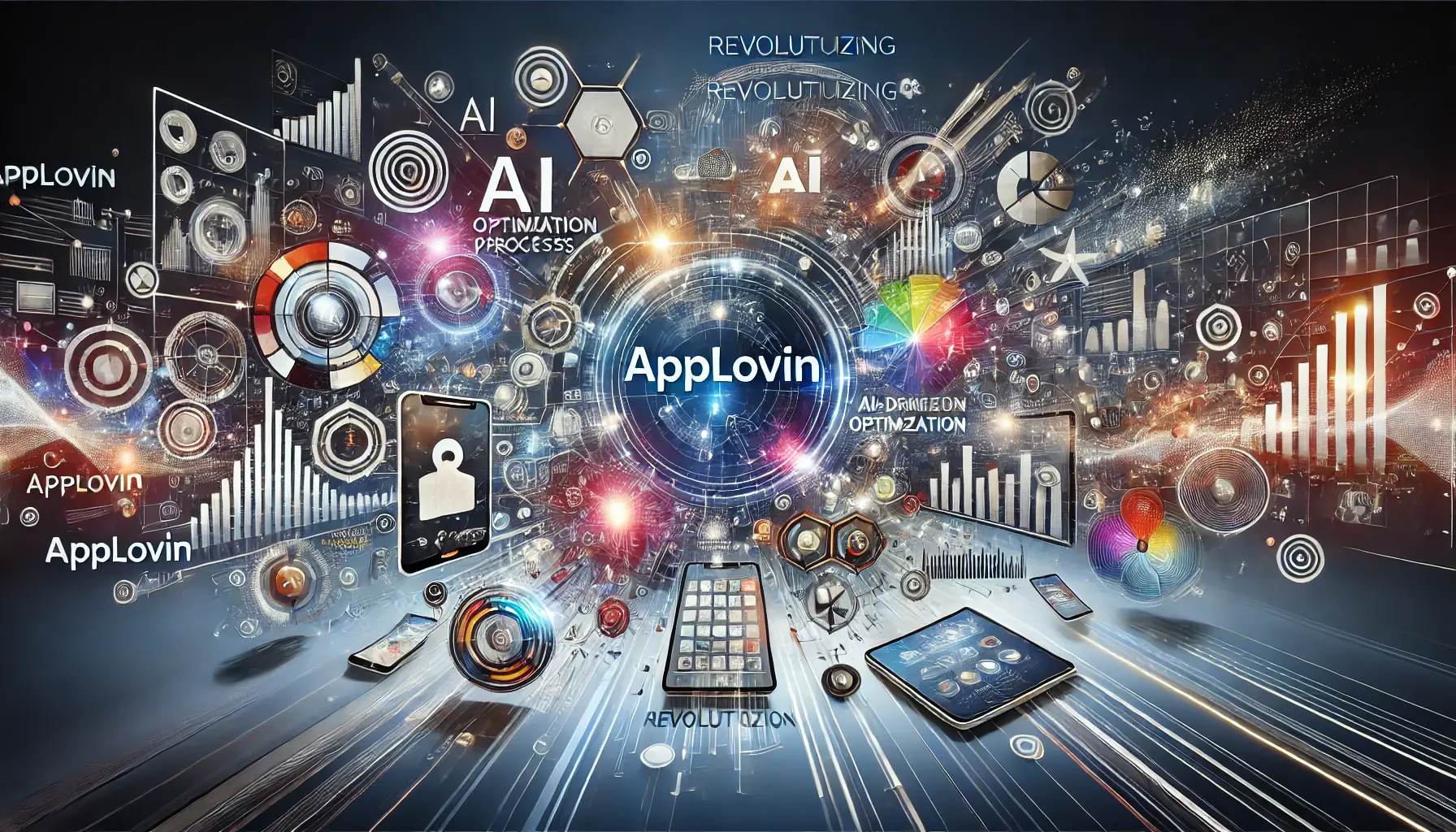
Transforming mobile advertising: AppLovin’s role in shaping the future of mobile marketing.
AppLovin: Revolutionizing Mobile Advertising
AppLovin, a mobile technology company, utilized Generative AI to enhance its advertising platform, which significantly boosted its market valuation.
By focusing on AI-driven strategies, AppLovin expanded its influence in the mobile gaming and e-commerce advertising sectors, showcasing the transformative potential of AI in driving business growth.
These case studies illustrate how embracing Generative AI can lead to significant improvements in customer experience, operational efficiency, and overall business performance.
- Walmart: Increased sales through personalized marketing.
- Grind Coffee: Boosted productivity using AI automation.
- AppLovin: Revolutionized mobile advertising.
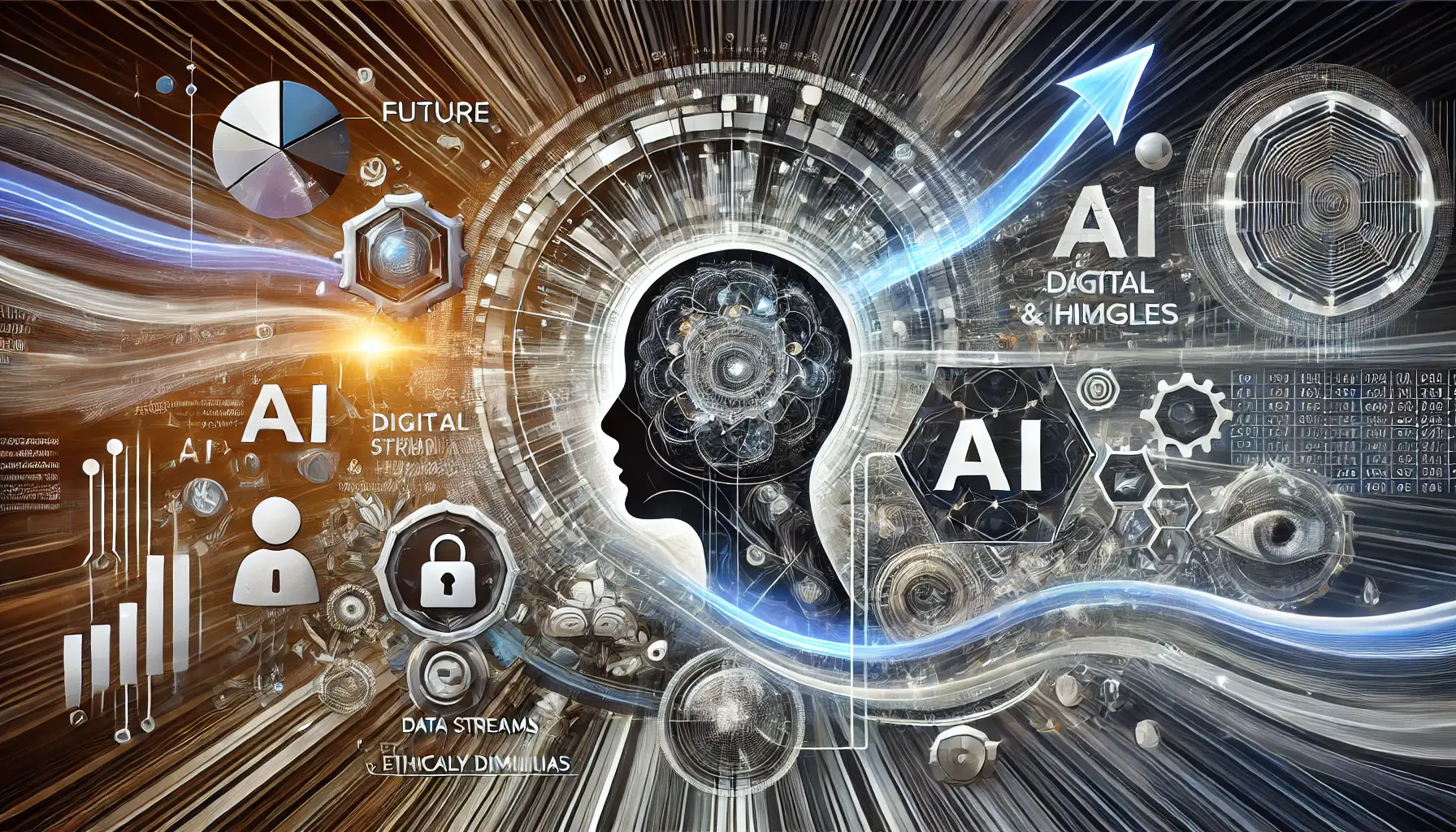
Navigating the future: Trends and challenges in Generative AI for advertising.
Future Trends and Challenges in Generative AI for Advertising
As we approach 2025, Generative AI is poised to further revolutionize the advertising industry.
Understanding the emerging trends and potential challenges will be crucial for businesses aiming to leverage this technology effectively.
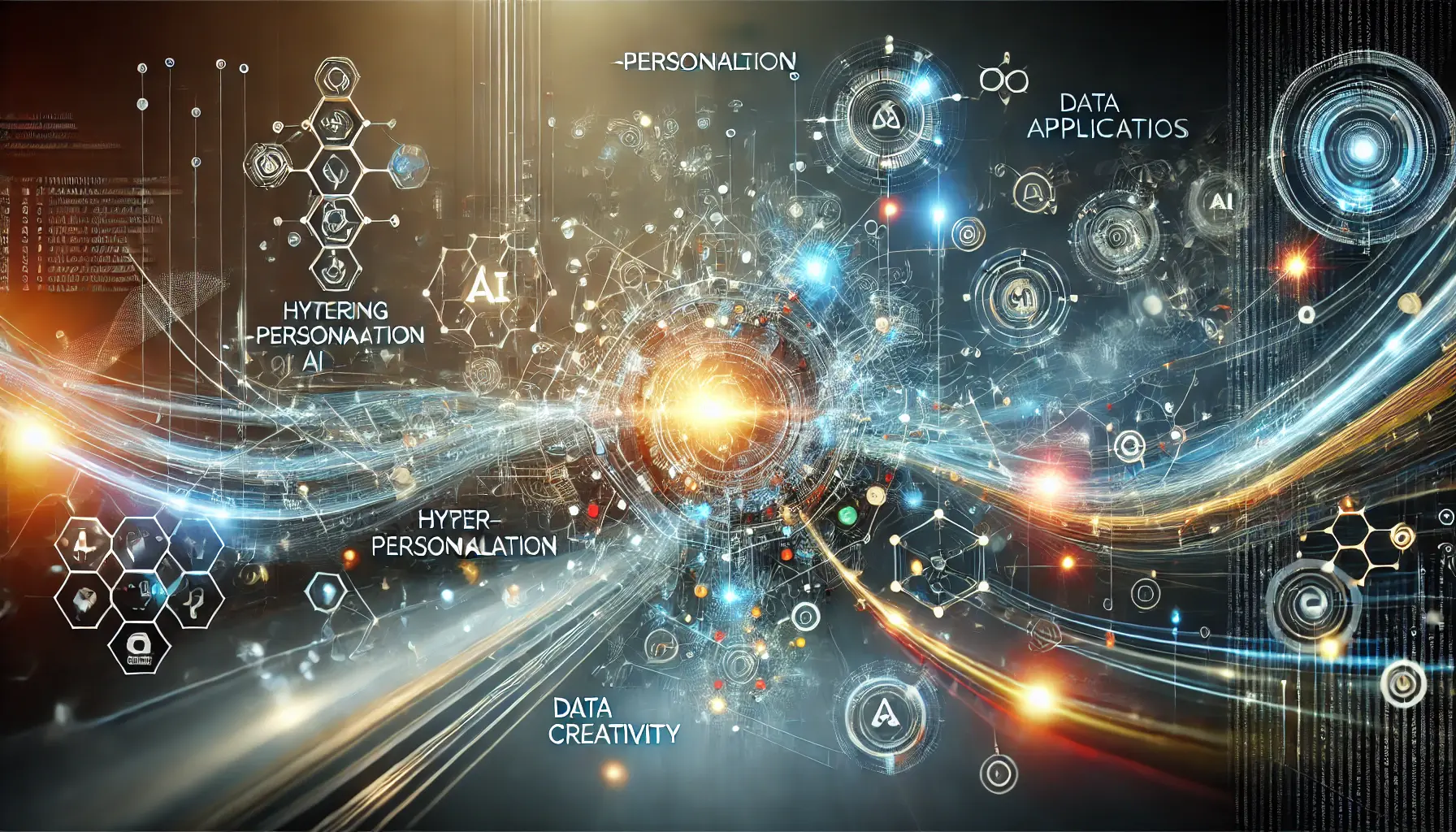
The future unfolds: Exploring emerging trends in Generative AI and its potential applications.
Emerging Trends in Generative AI
- Hyper-Personalized Marketing: AI-driven content creation will enable brands to deliver highly personalized advertisements, enhancing customer engagement and conversion rates. This trend is expected to become more prominent as AI technologies continue to evolve.
- AI Agents in Advertising: The development of AI agents capable of autonomously managing complex advertising tasks is anticipated to streamline operations and improve efficiency. These agents will handle multi-stage jobs, allowing human teams to focus on strategic decision-making.
- Integration Across Industries: Beyond traditional sectors, industries such as healthcare, finance, and education are expected to adopt Generative AI for marketing purposes, broadening the scope and impact of AI-driven advertising strategies.
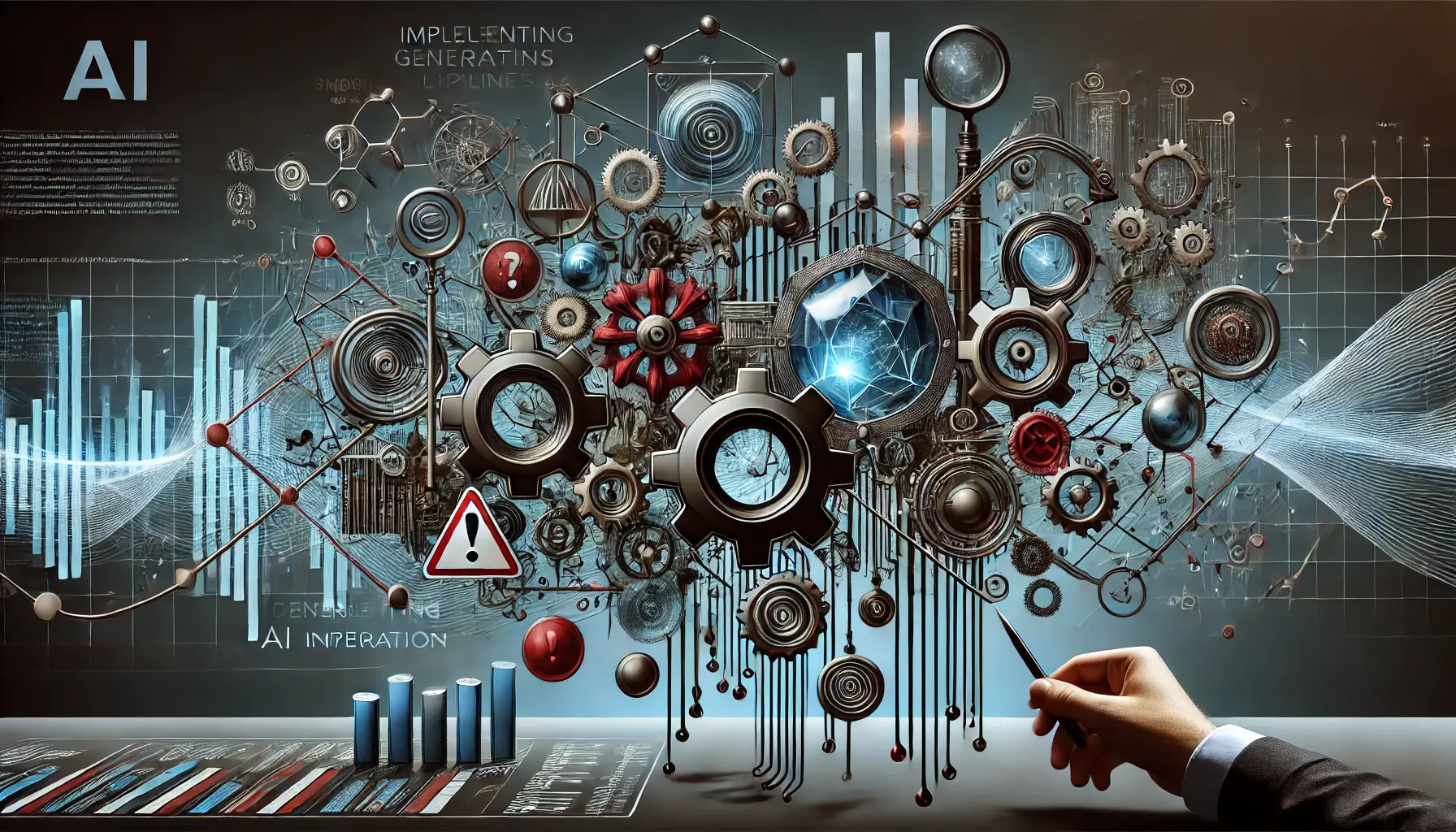
Overcoming hurdles: The challenges in implementing Generative AI and its complexities.
Challenges in Implementing Generative AI
- Quality Assurance: Ensuring the accuracy and relevance of AI-generated content remains a significant concern. Instances of AI producing incorrect or nonsensical outputs, known as ‘hallucinations,’ can undermine marketing efforts. Implementing robust quality control measures is essential.
- Ethical and Privacy Concerns: The use of AI in advertising raises questions about data privacy and the ethical implications of personalized content. Businesses must navigate these issues carefully to maintain consumer trust and comply with regulations.
- Maintaining Brand Authenticity: Over-reliance on AI-generated content may lead to a loss of brand uniqueness and authenticity. Balancing AI utilization with human creativity is crucial to preserving the brand’s voice and identity.
By staying informed about these trends and proactively addressing the associated challenges, businesses can harness the full potential of Generative AI to drive innovation and success in their advertising endeavors.
- Emerging Trends: AI agents, hyper-personalization, and cross-industry integration.
- Challenges: Ensuring content quality and addressing ethical concerns are vital.
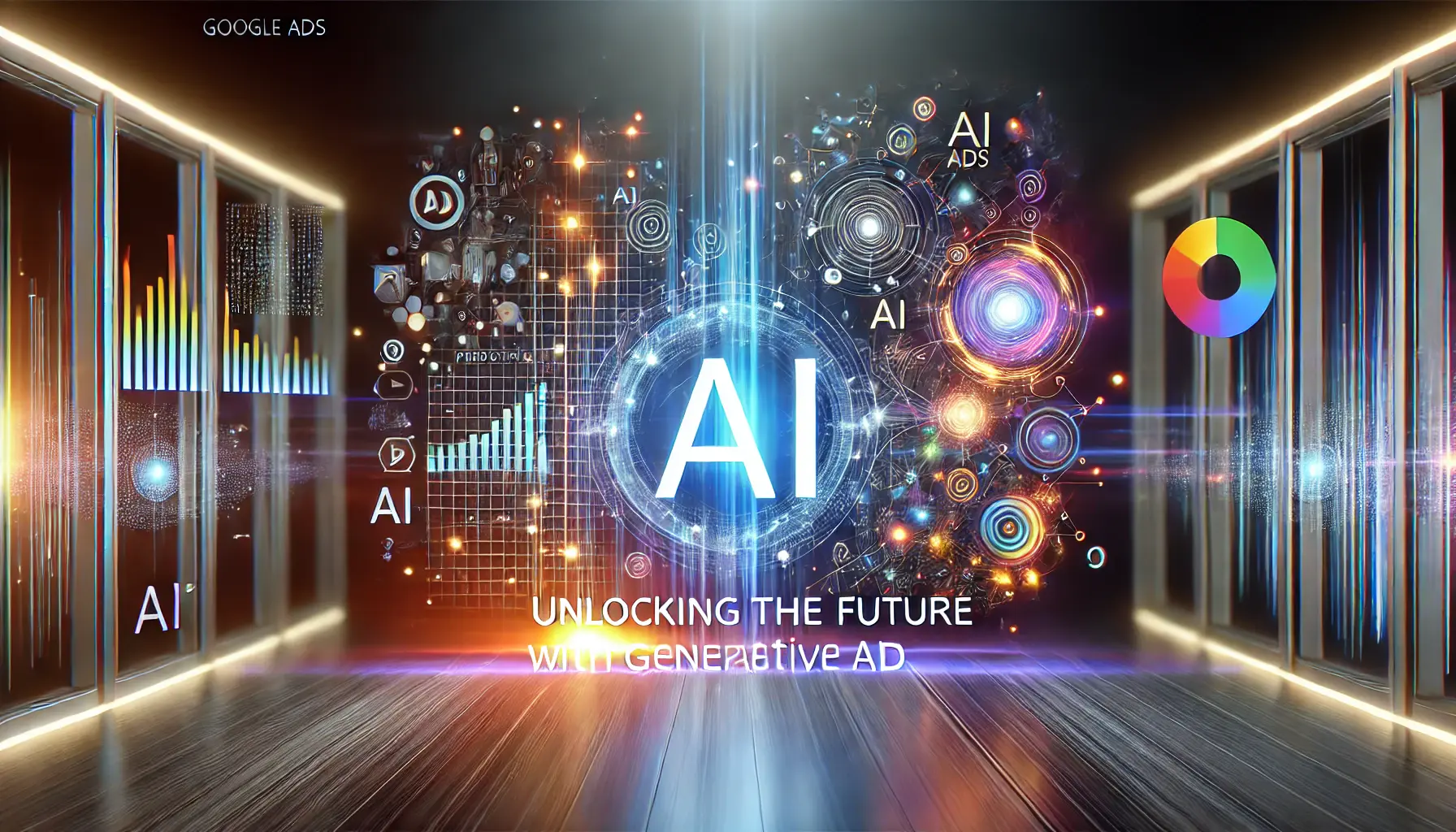
Shaping the future: The role of Generative AI in transforming Google Ads.
Unlocking the Future with Generative AI in Google Ads
As the digital marketing landscape continues to evolve, integrating Generative AI into advertising strategies has proven to be a transformative step for businesses.
This technology has opened up unexplored avenues to create personalized content, automate complex processes, and optimize campaign performance across industries.
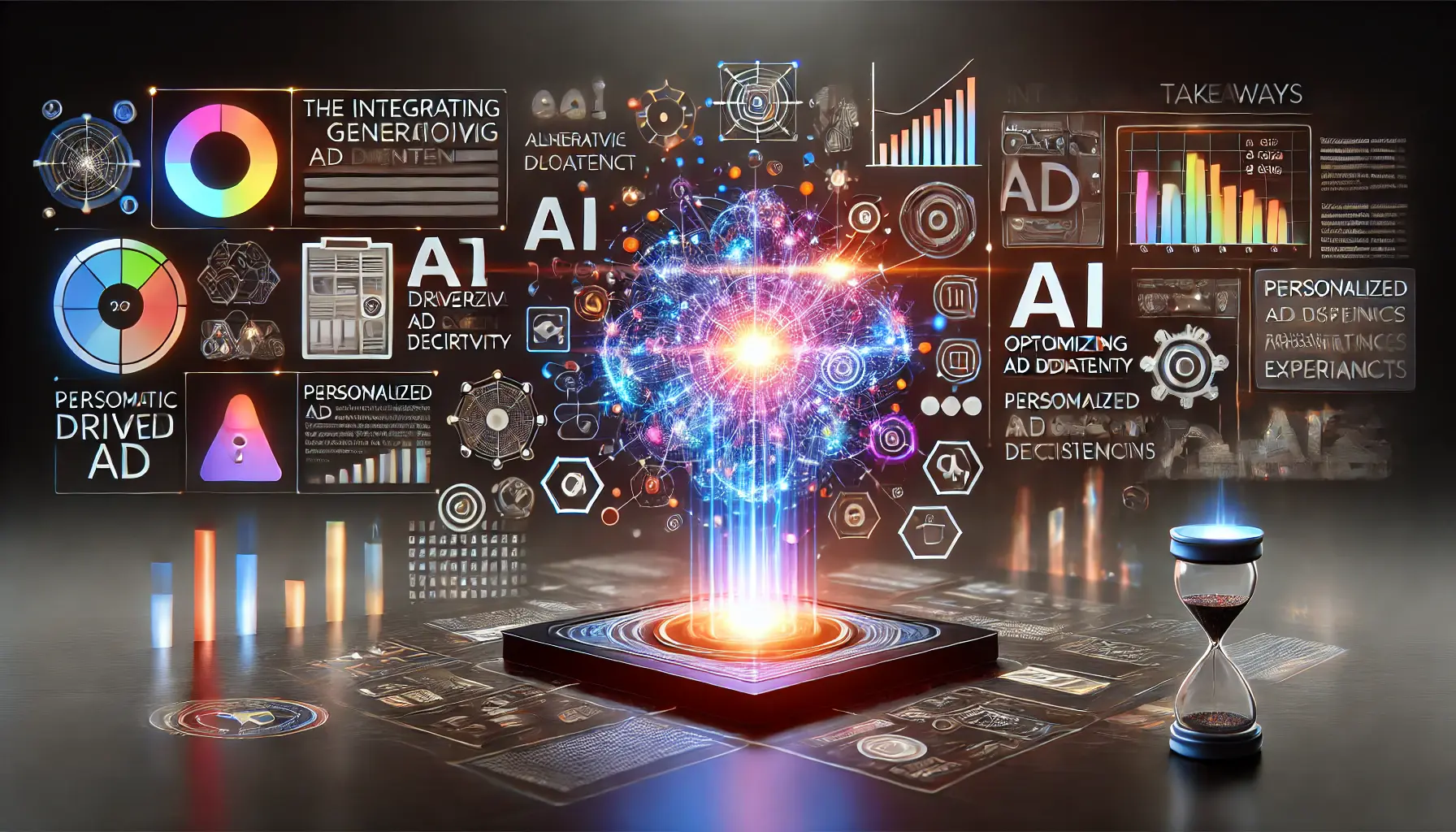
The impact of Generative AI: Key takeaways from its integration into digital advertising.
Key Takeaways from Generative AI Integration
Throughout this article, we explored how Generative AI is revolutionizing Google Ads.
Here are the highlights:
- Understanding Generative AI: Leveraging complex algorithms, Generative AI develops focused content to ensure that messages resonate with target segments.
- State-of-the-Art Features: AI-driven innovations, such as tools for campaign building and Performance Max capabilities, make ad management less prone to errors.
- Implementation Strategies: Personalization, algorithm-driven targeting, and real-time bidding are some of the practical applications of Generative AI.
- Success Stories: Case studies from Walmart, Grind Coffee, and AppLovin illustrate the transformative potential of AI-driven advertising.
- Future Trends: Hyper-personalization, AI agents, and cross-industry integrations are expected to reshape advertising. However, challenges like quality assurance and preserving brand authenticity require proactive solutions.

Unlocking the future: Embracing the transformative potential of Generative AI.
Embracing the Potential of Generative AI
Generative AI has become more than just another tool; it is a key to innovation and growth in advertising.
By leveraging its power, businesses can enhance customer experiences, automate processes, and achieve unparalleled efficiency in their operations.
However, successful adoption requires strategic planning and awareness of potential challenges.
Addressing issues such as ethical considerations and ensuring high-quality content will be critical for maintaining consumer trust and maximizing the technology’s benefits.
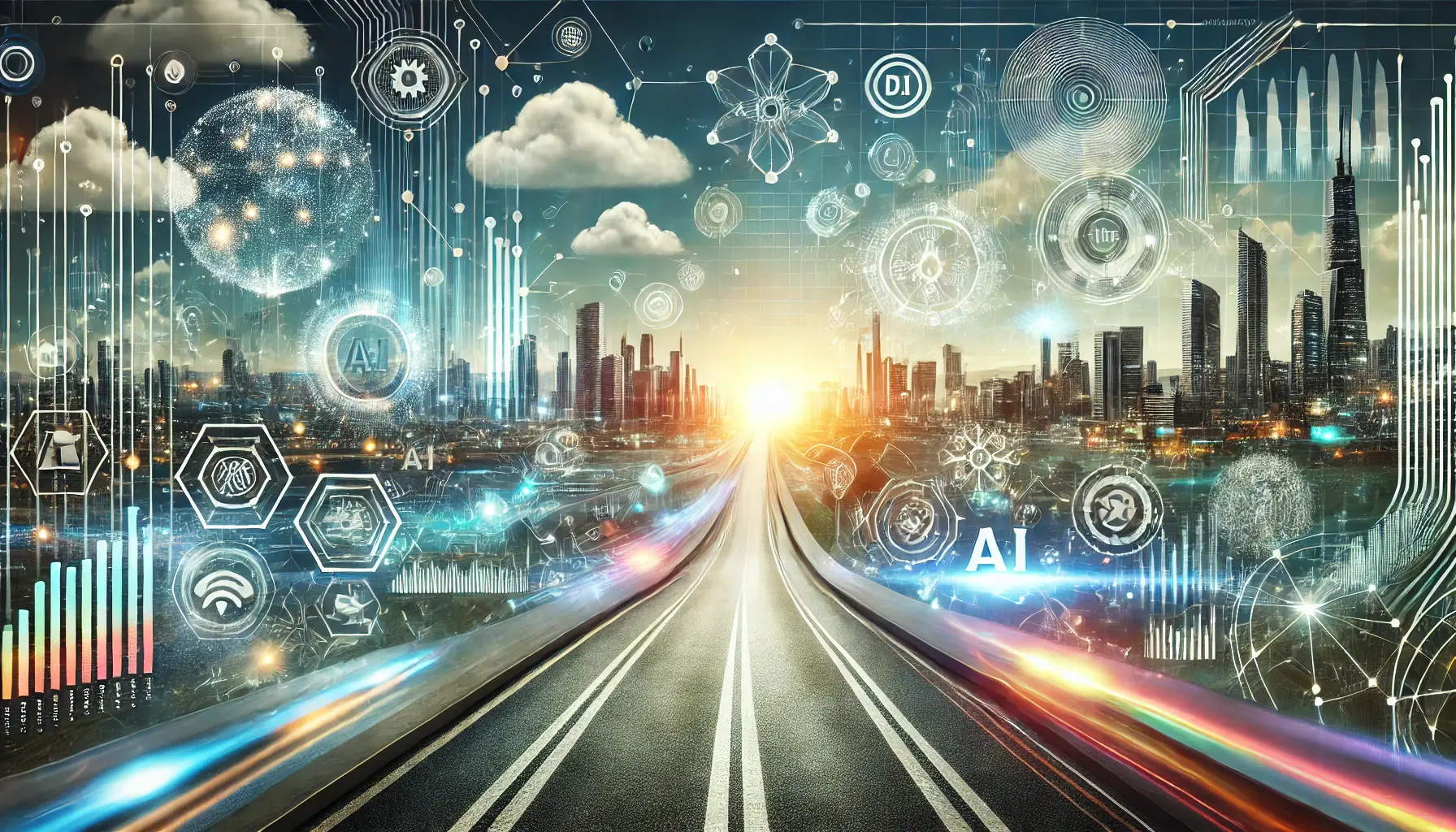
The journey forward: Navigating the road to future advancements in technology and advertising.
The Road Ahead
As we look forward, the role of Generative AI in Google Ads will only expand.
For businesses aiming to stay competitive, now is the time to embrace this technology and harness its full potential.
By doing so, you can not only transform your advertising efforts but also secure a strong position in the future of digital marketing.
Generative AI transforms advertising by enabling personalized, efficient, and innovative marketing strategies that drive measurable success.
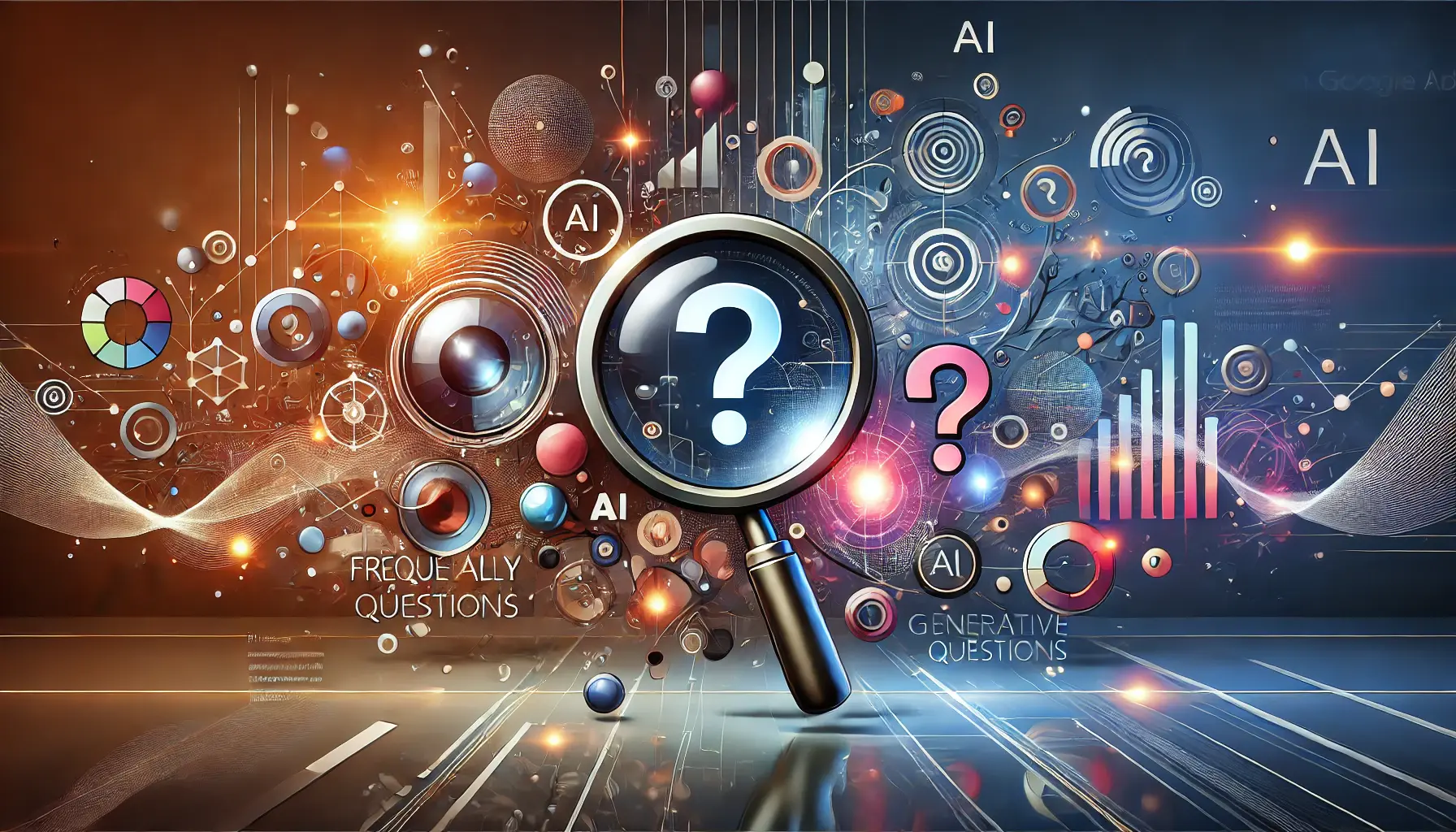
Exploring the answers: Unraveling the frequently asked questions about Generative AI in Google Ads.
Your campaigns can be managed by an agency specialized in Google Ads, check out our service page.
Frequently Asked Questions about Generative AI in Google Ads
As Generative AI continues to revolutionize Google Ads, many questions arise about its capabilities, implementation, and impact.
Here are some frequently asked questions to provide deeper insights into this transformative technology.
Google Ads’ Generative AI uses advanced algorithms to create personalized ad content, increasing engagement and improving campaign effectiveness.
It automates content creation and optimizes targeting, improving ad relevance and boosting conversion rates.
Yes, it generates tailored headlines, descriptions, and visuals using user data and behavior to enhance ad personalization.
Absolutely, it streamlines ad creation and management, making advanced advertising tools accessible to businesses of all sizes.
By delivering personalized content, it increases user engagement, leading to higher click-through rates and conversions.
Yes, issues like data privacyThe protection of personal data from unauthorized access or use. and content authenticity require careful consideration and responsible implementation.
Challenges include ensuring content quality, maintaining brand consistency, and addressing ethical and privacy concerns effectively.
